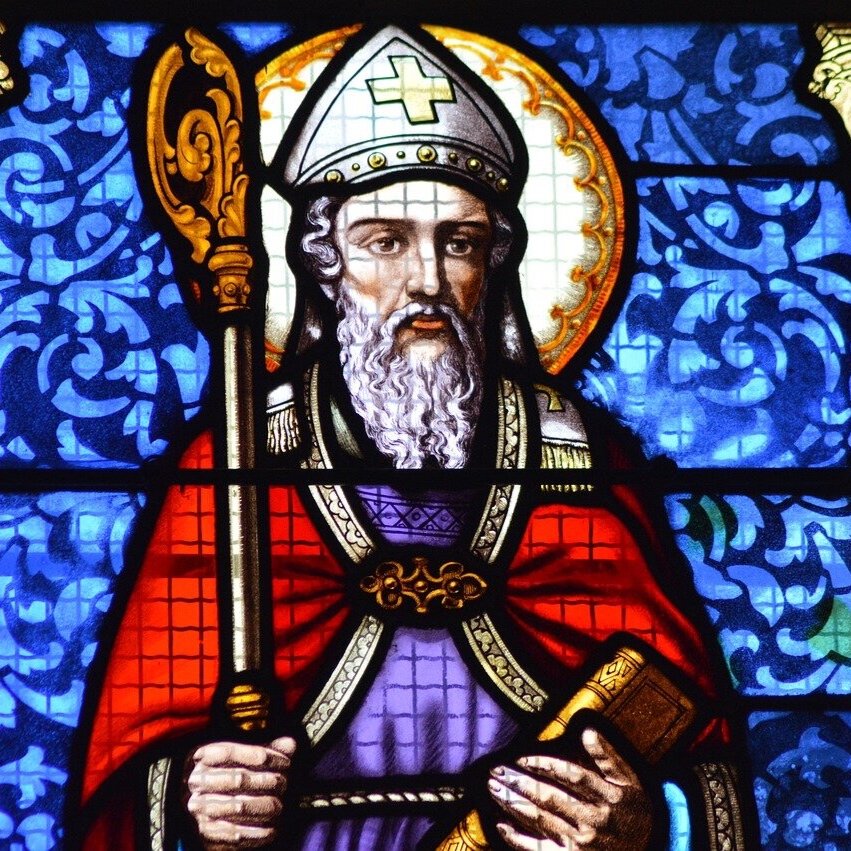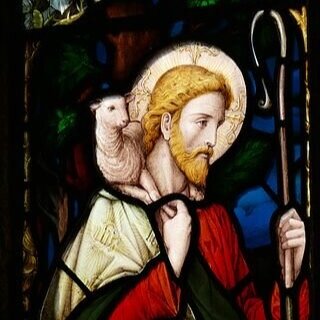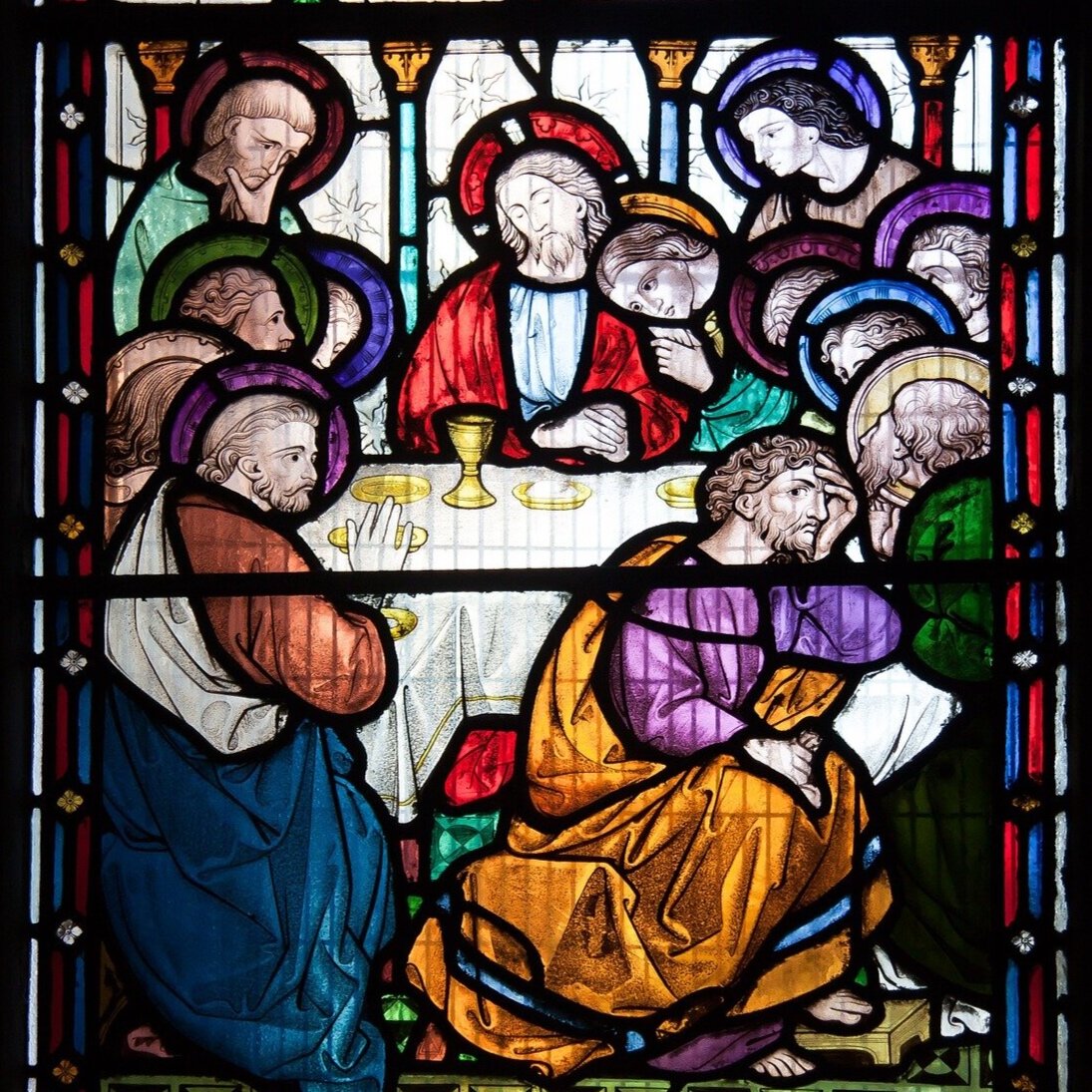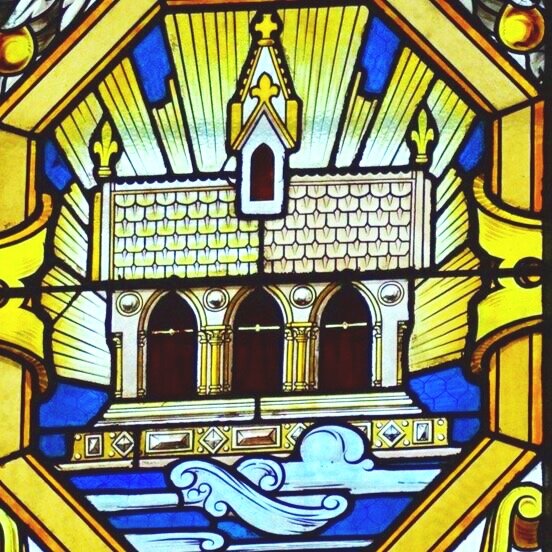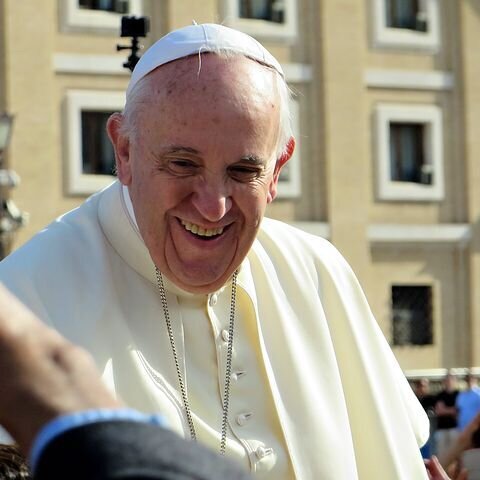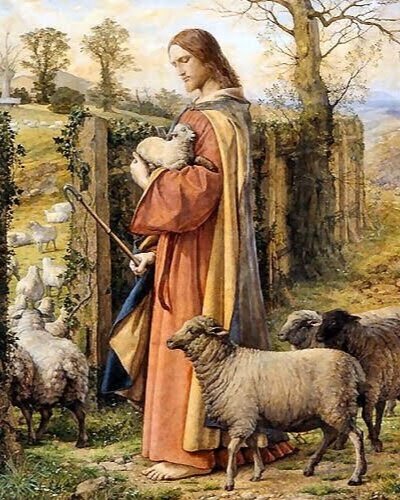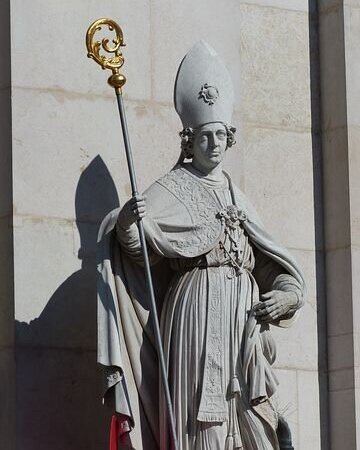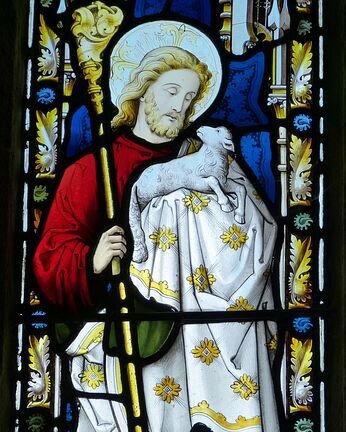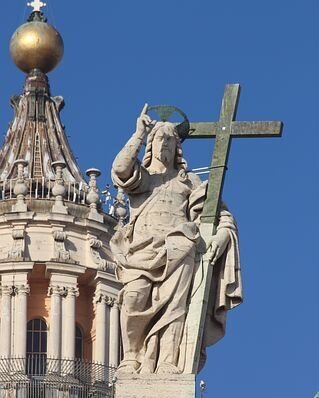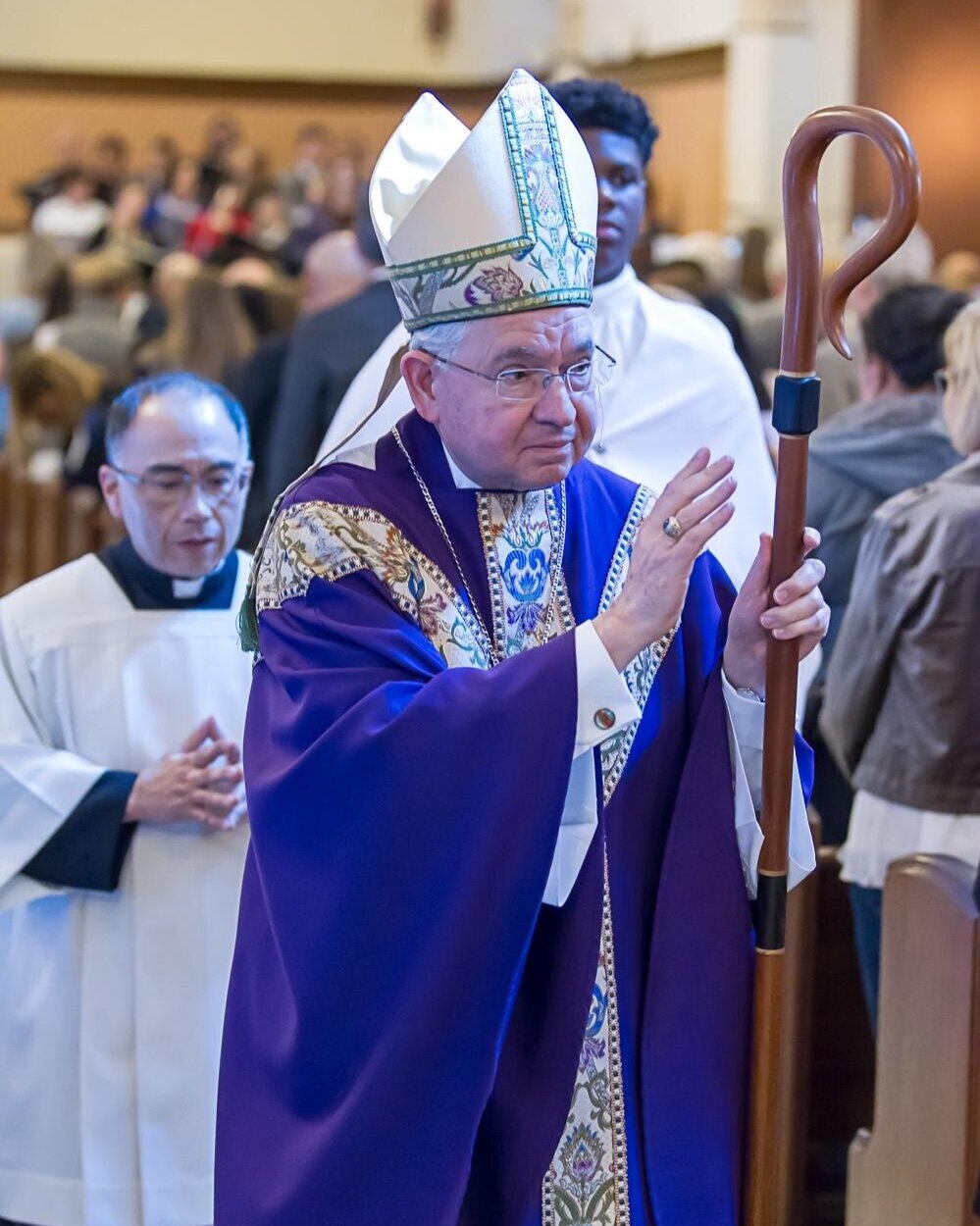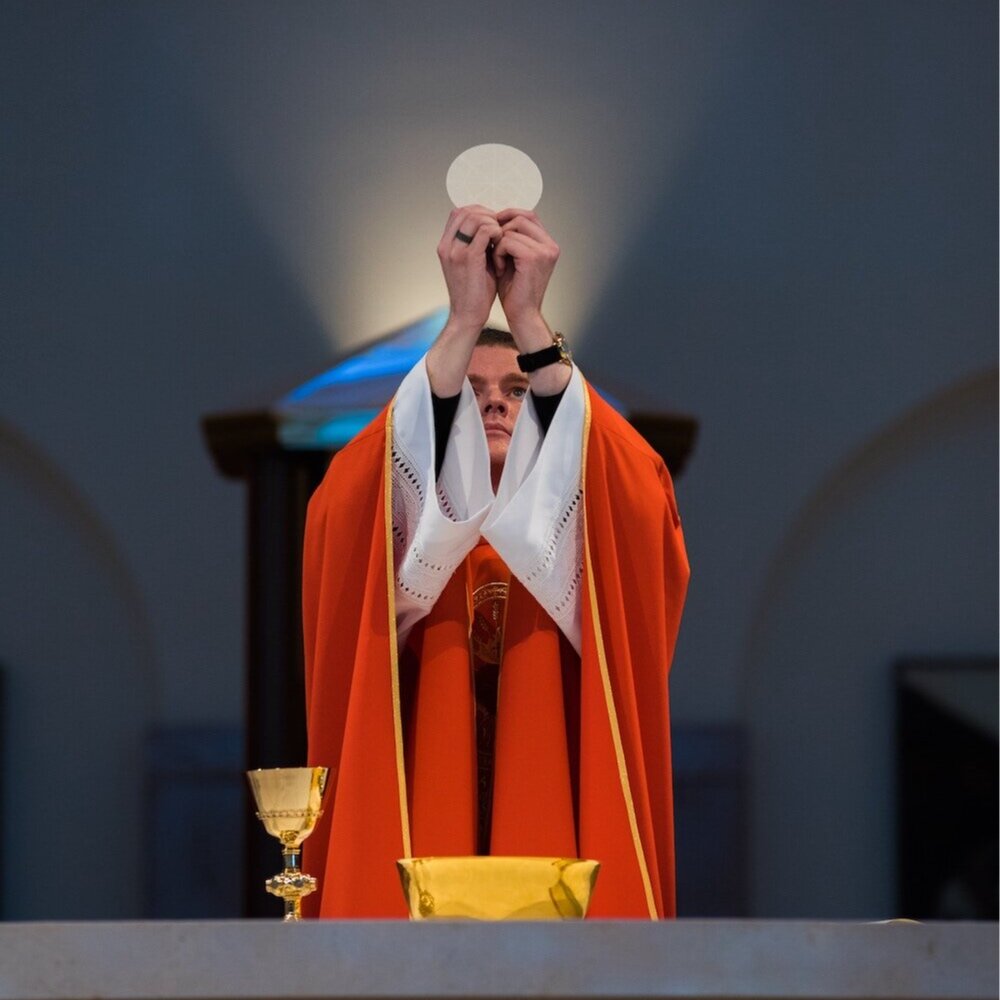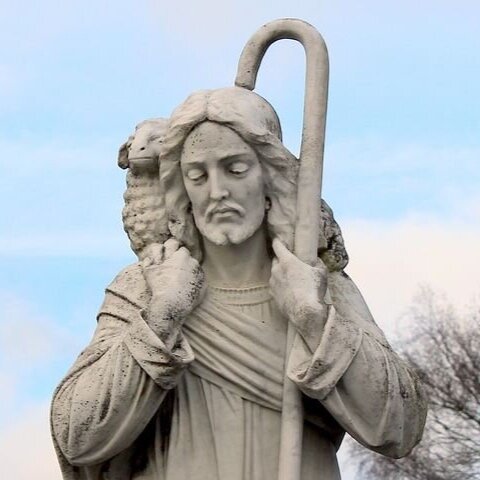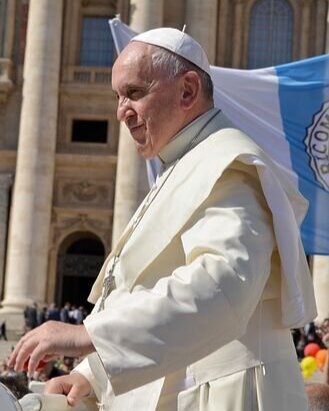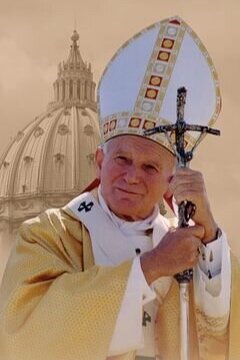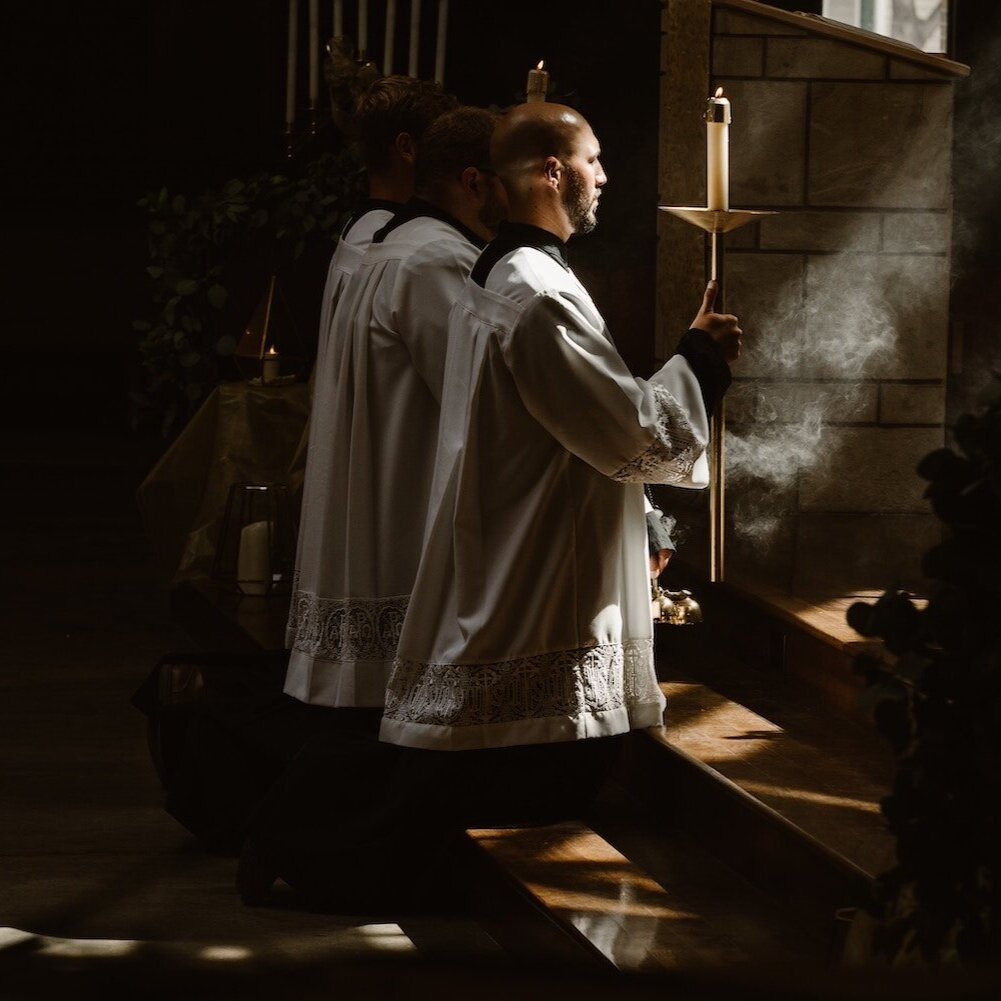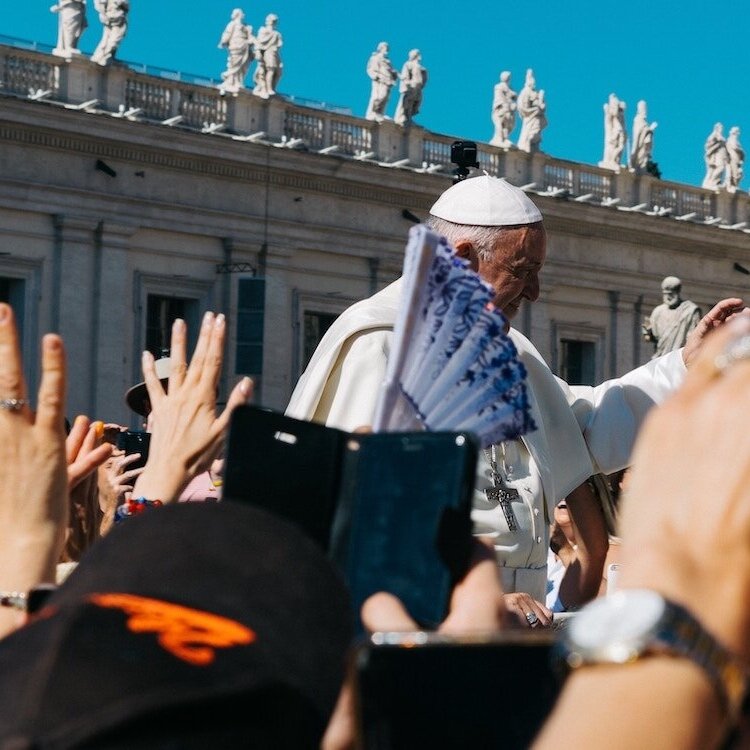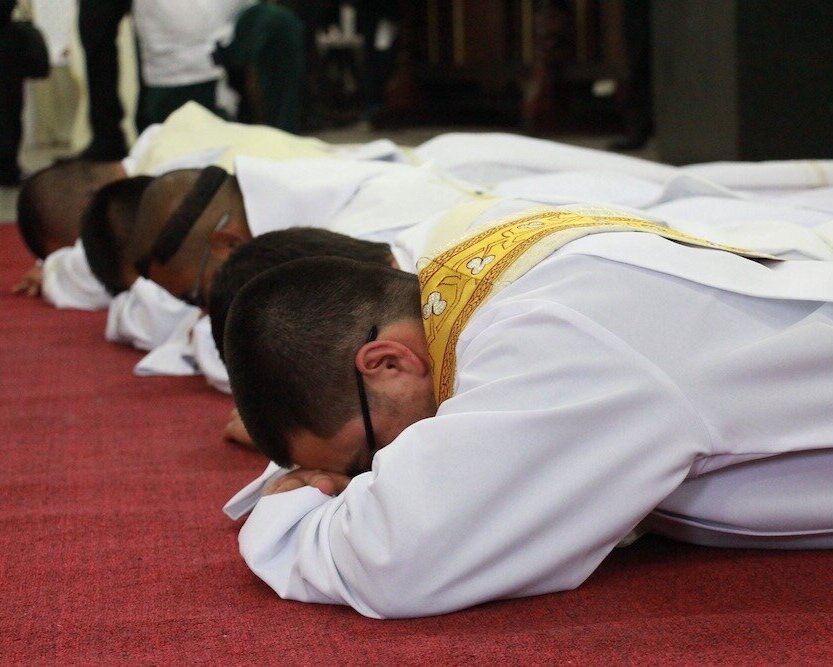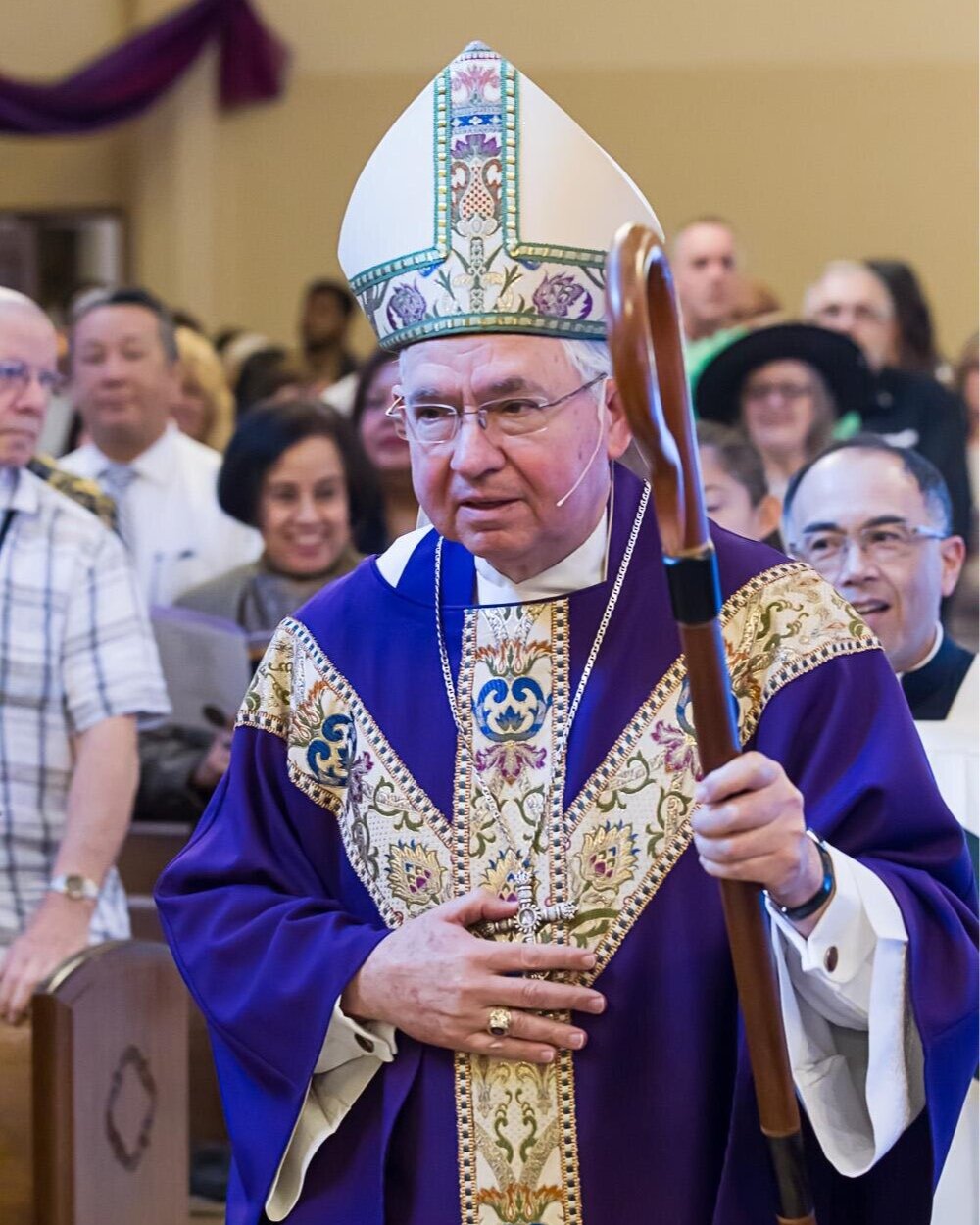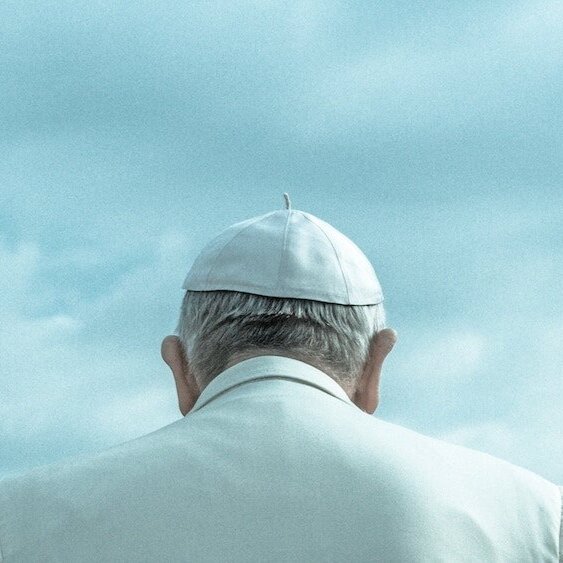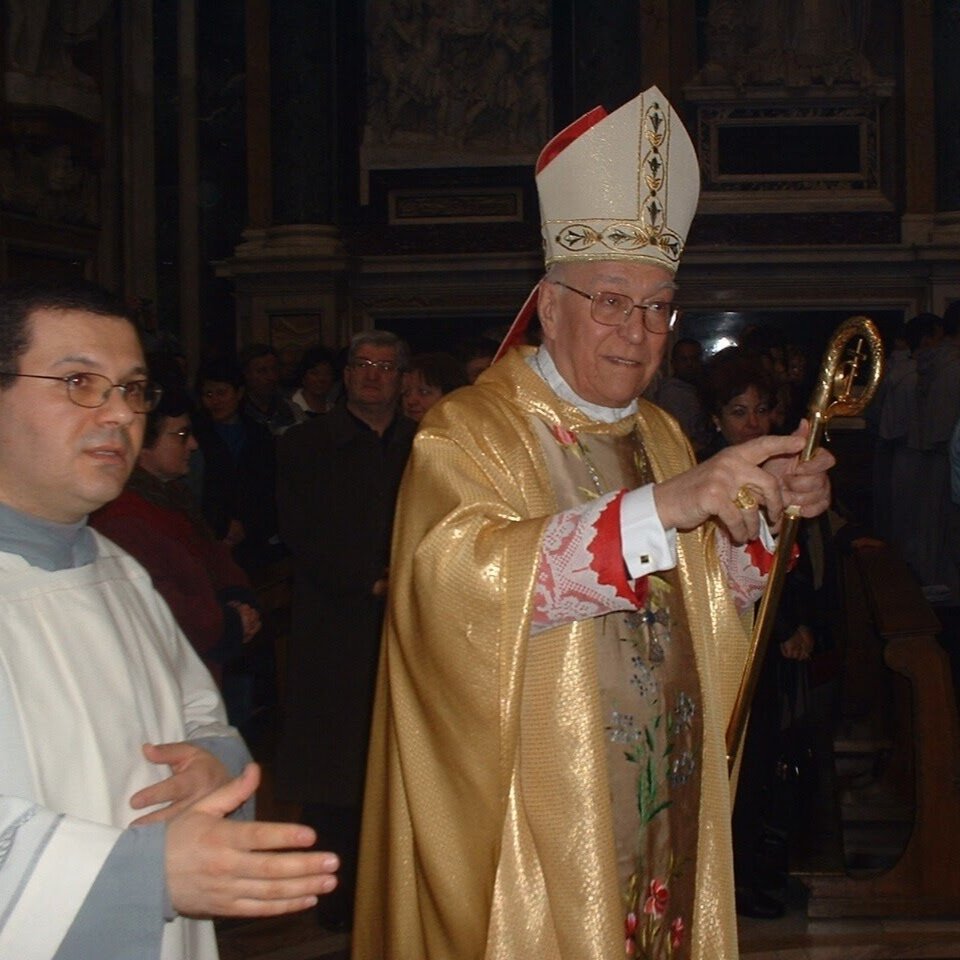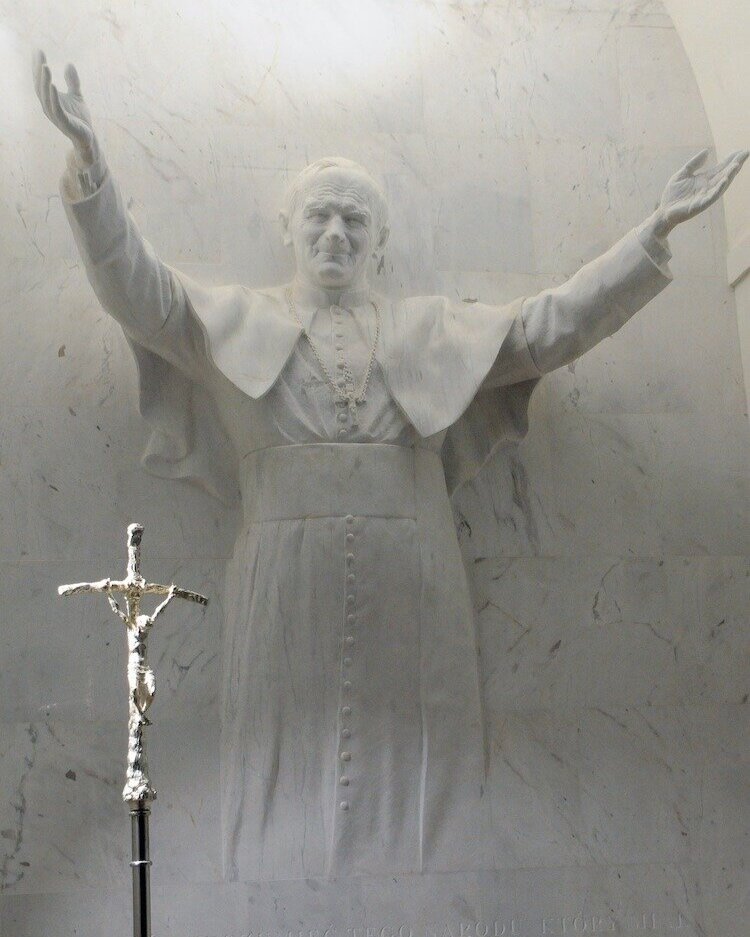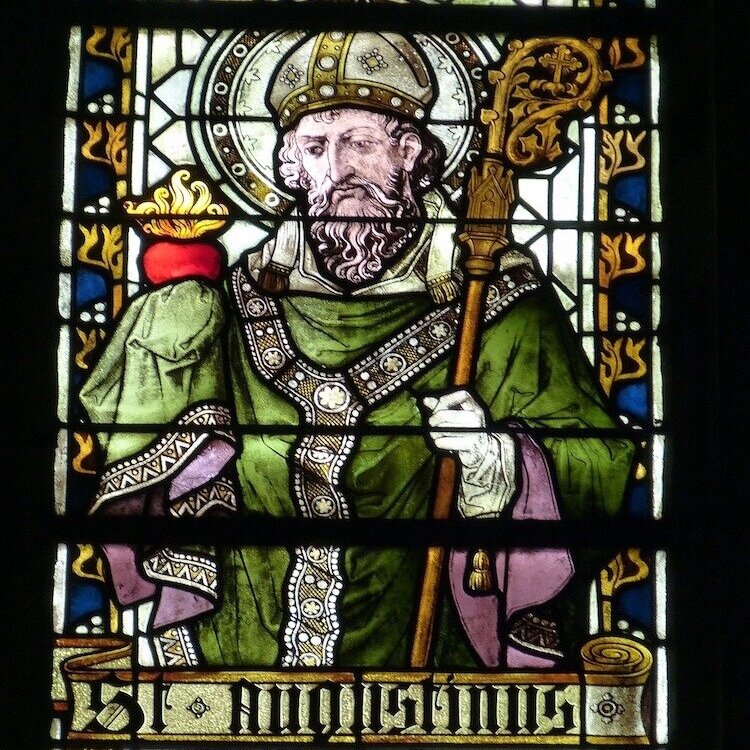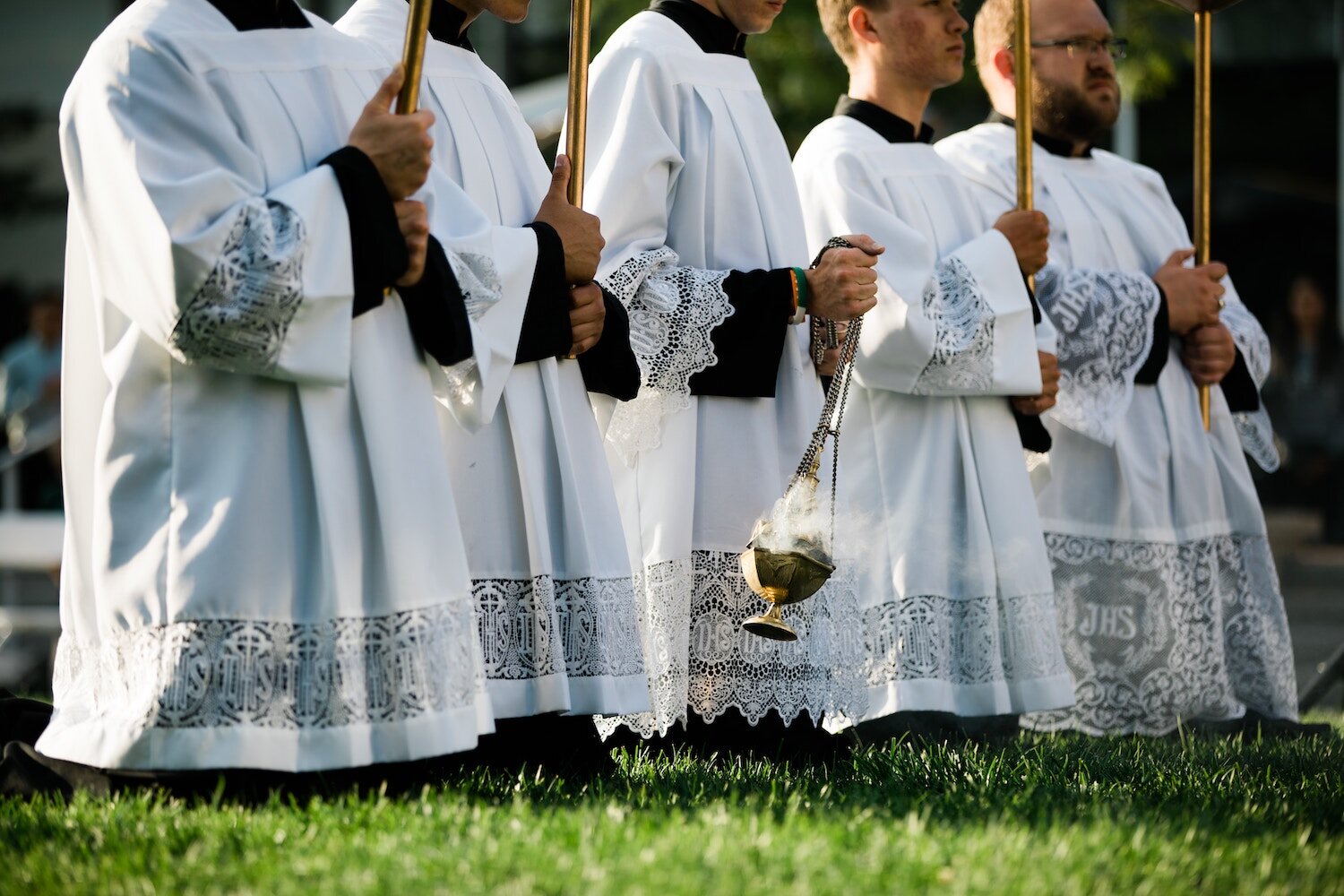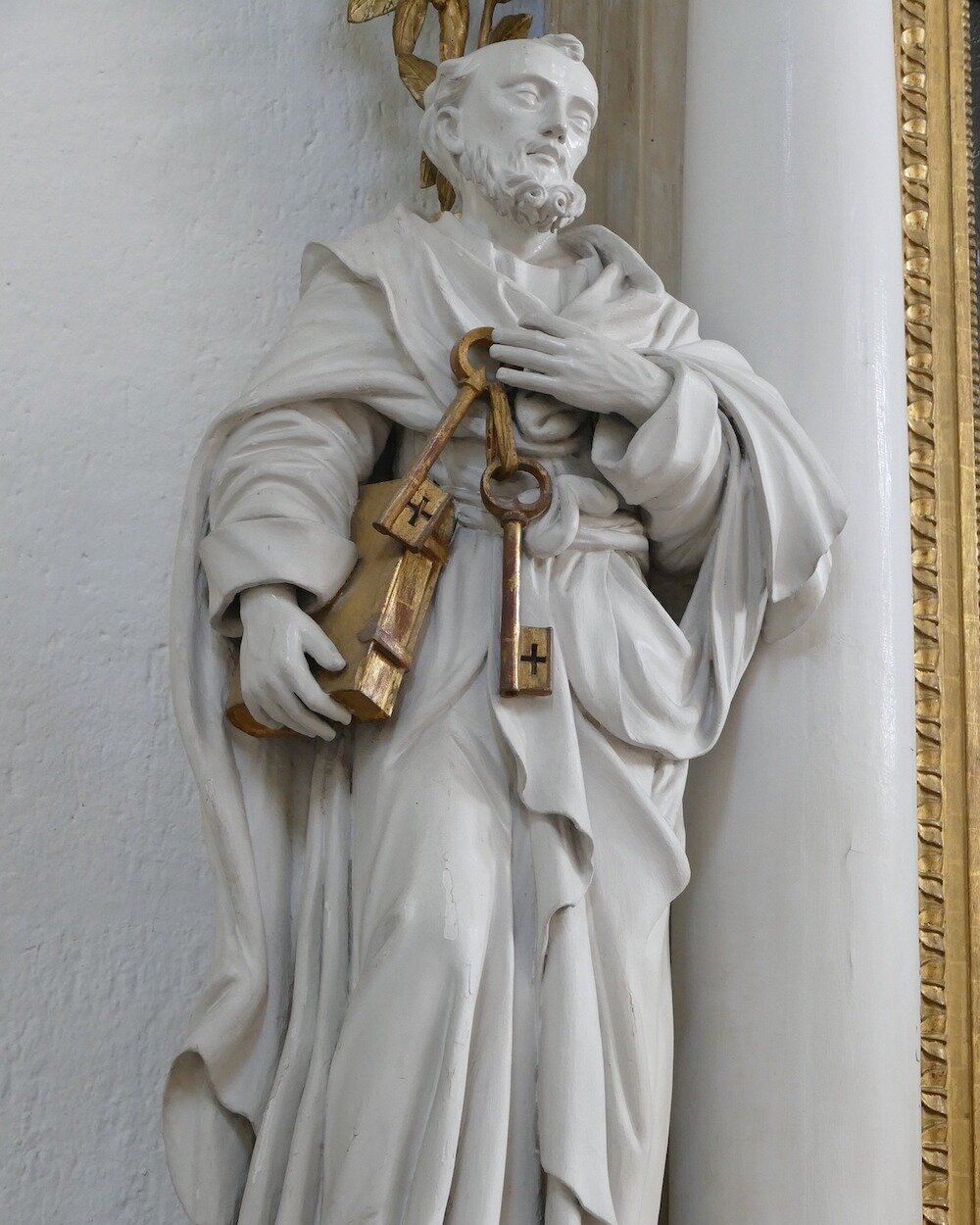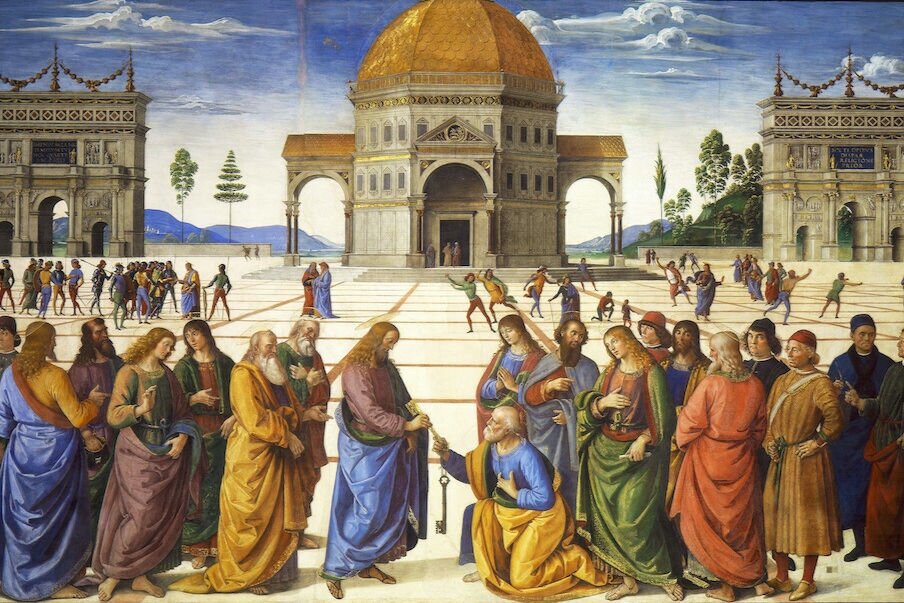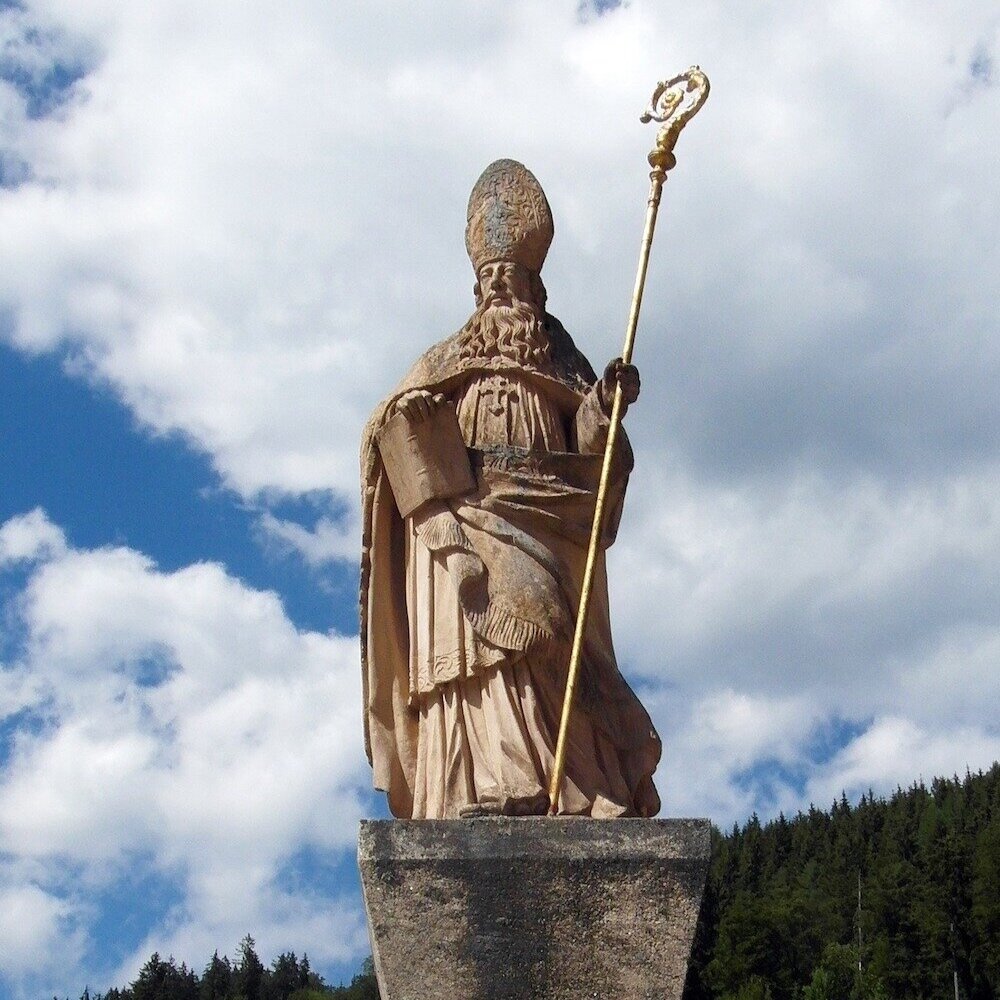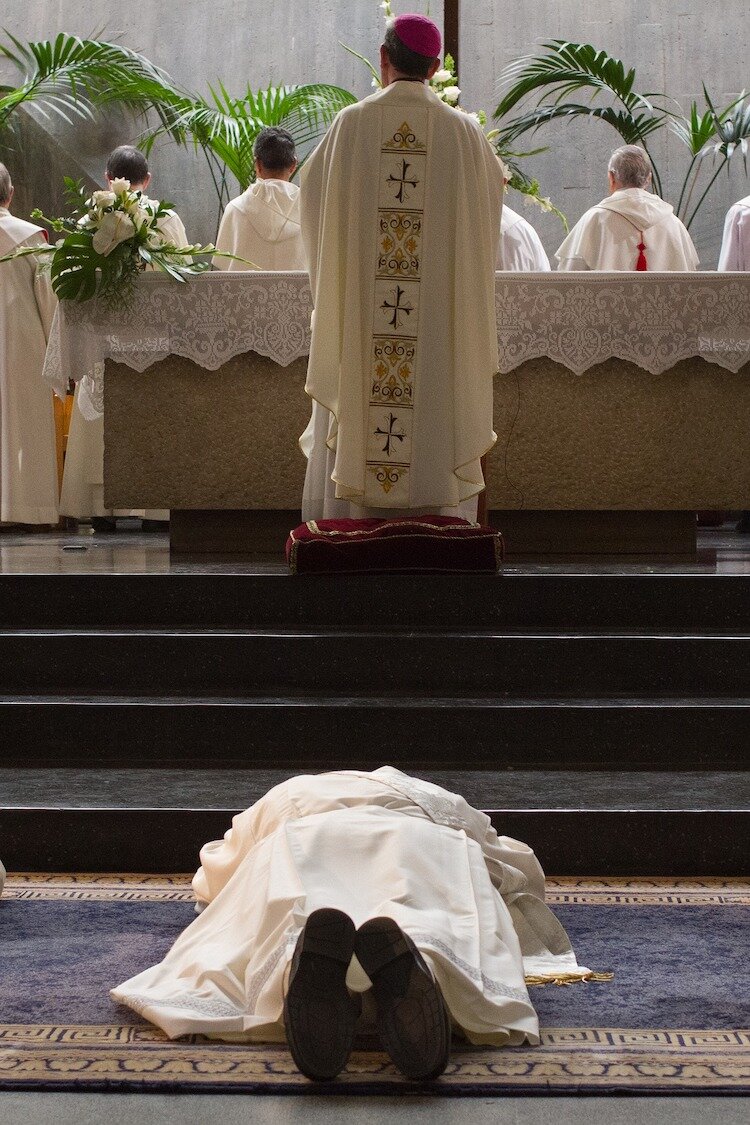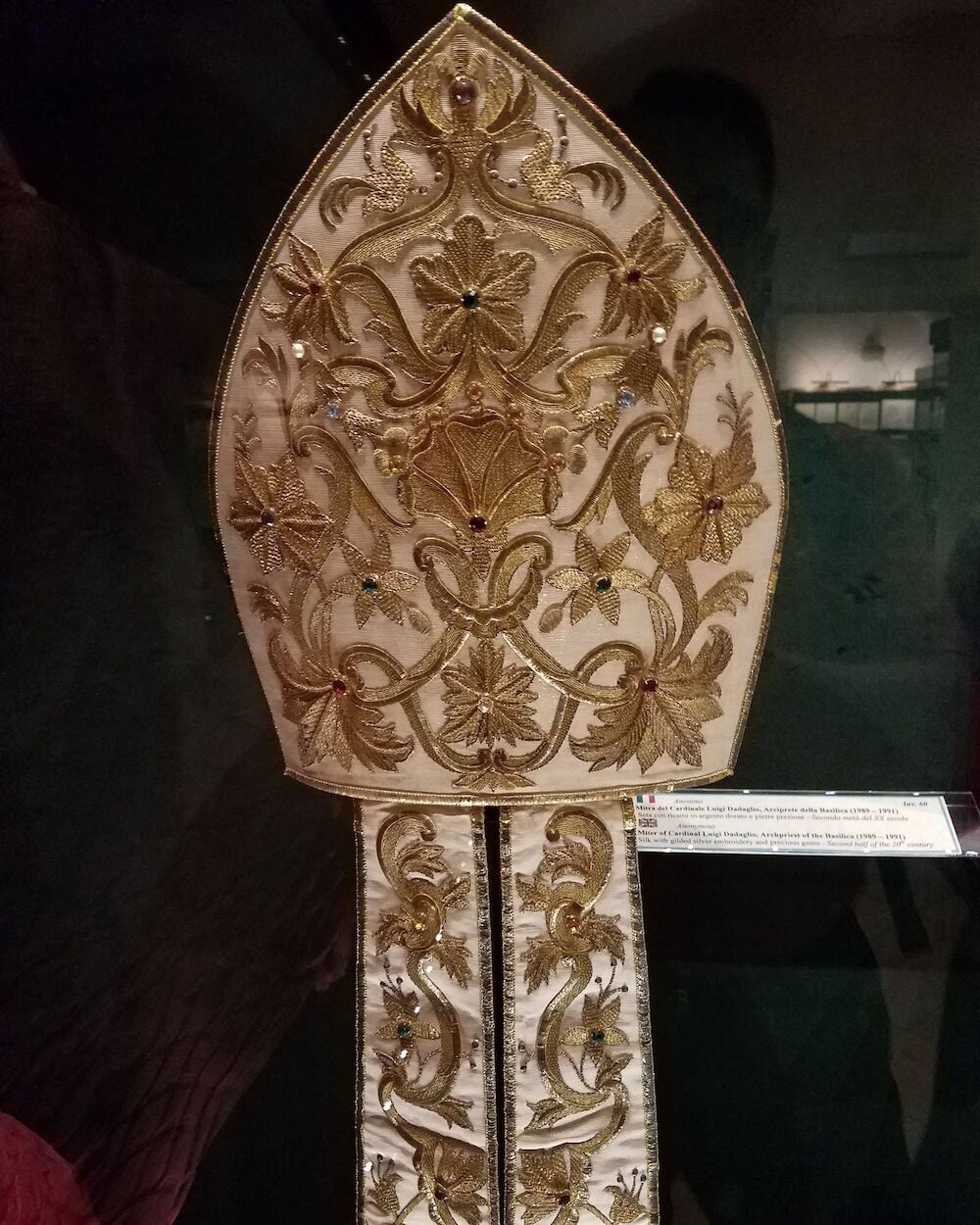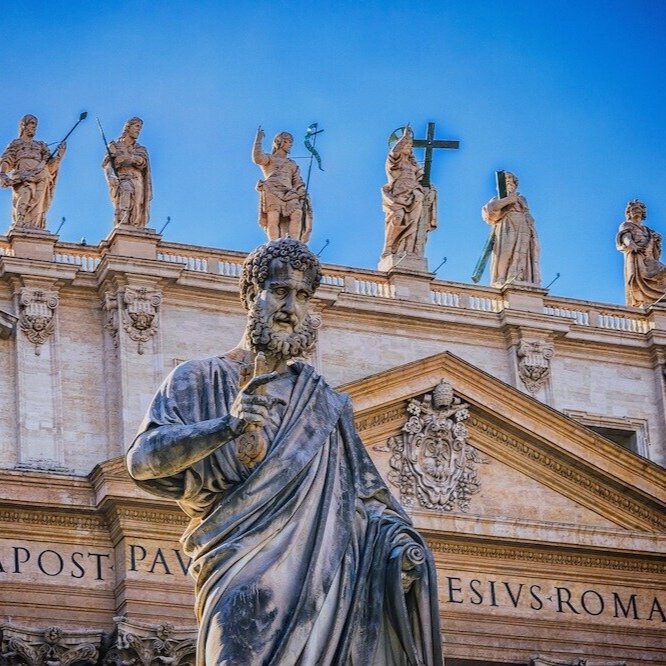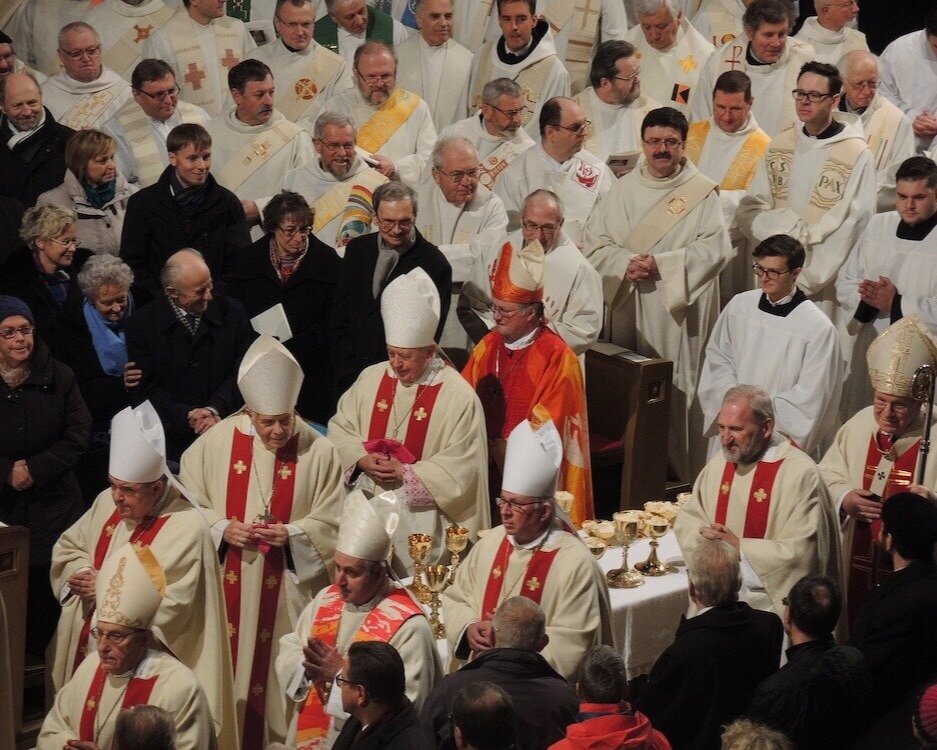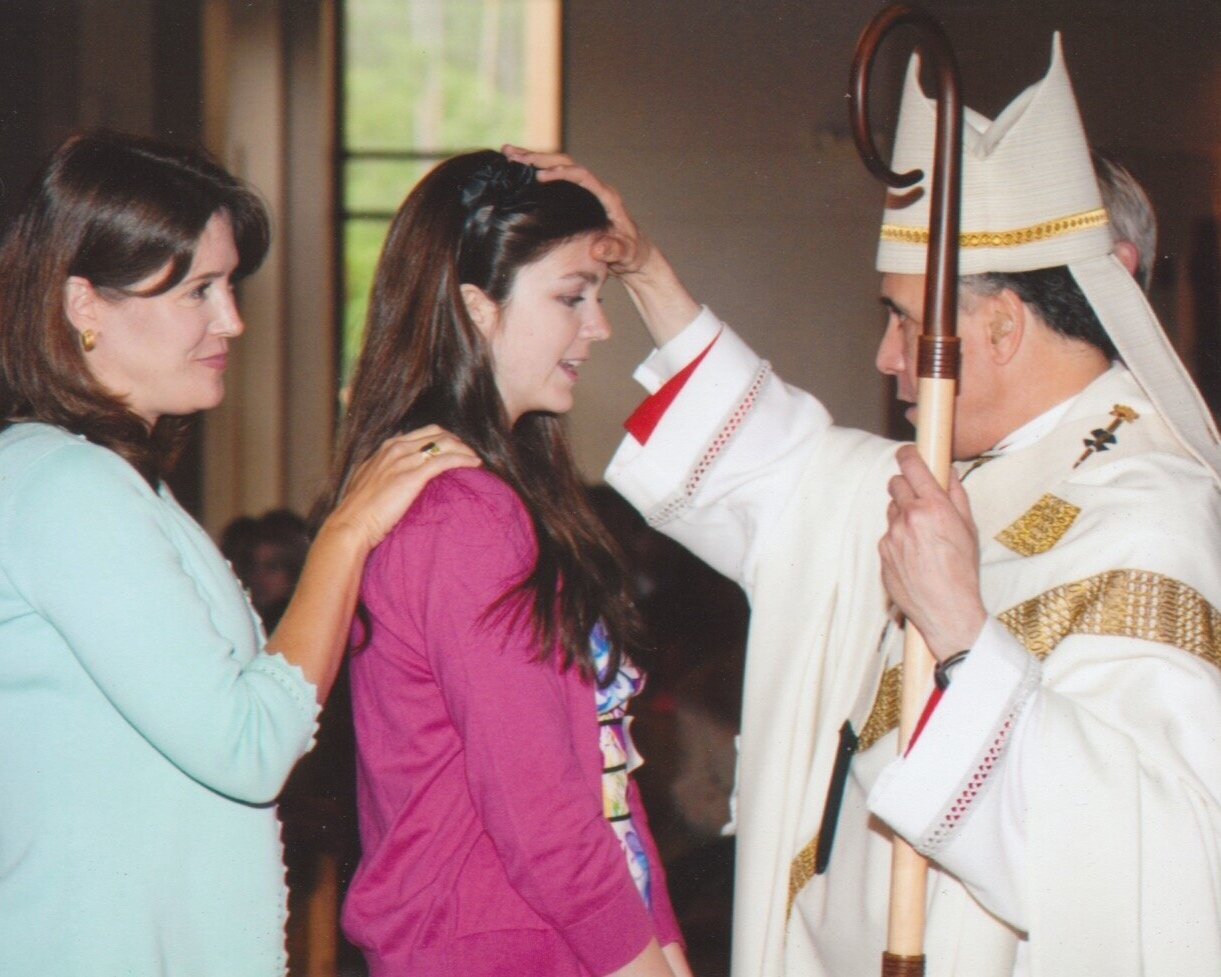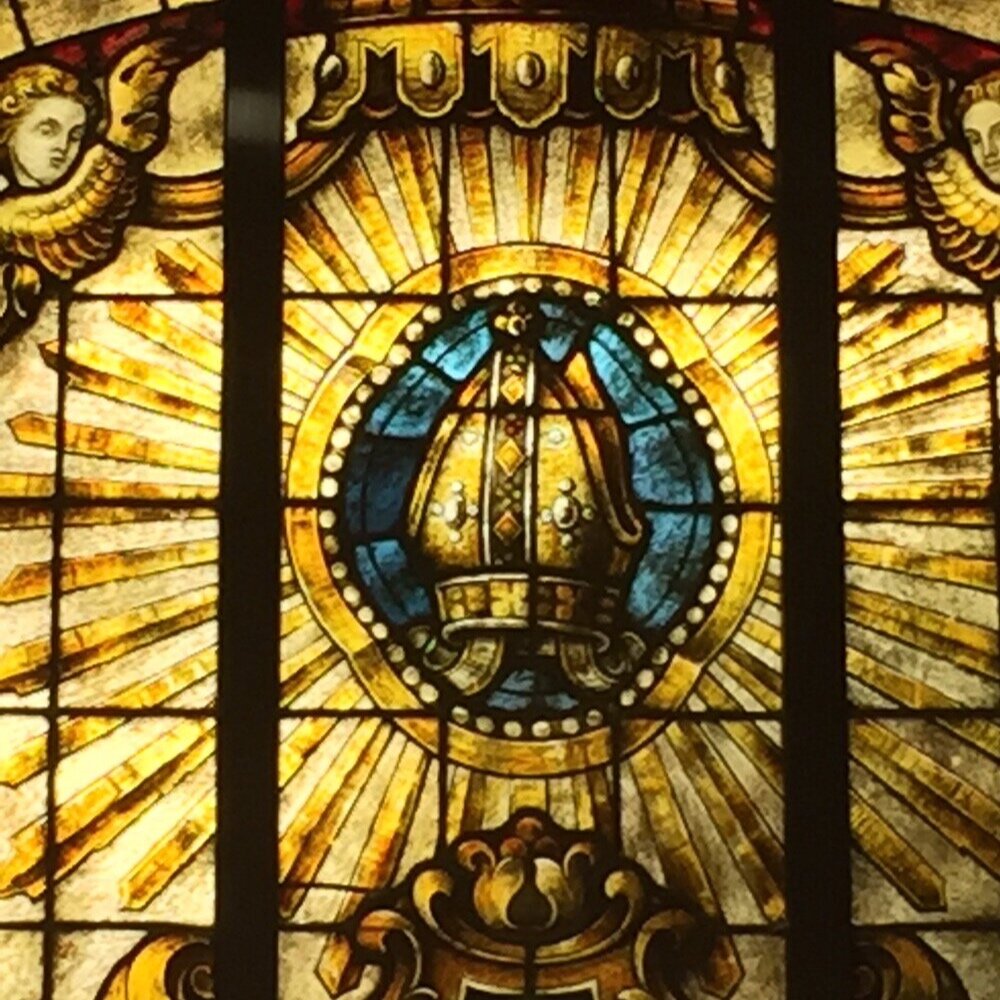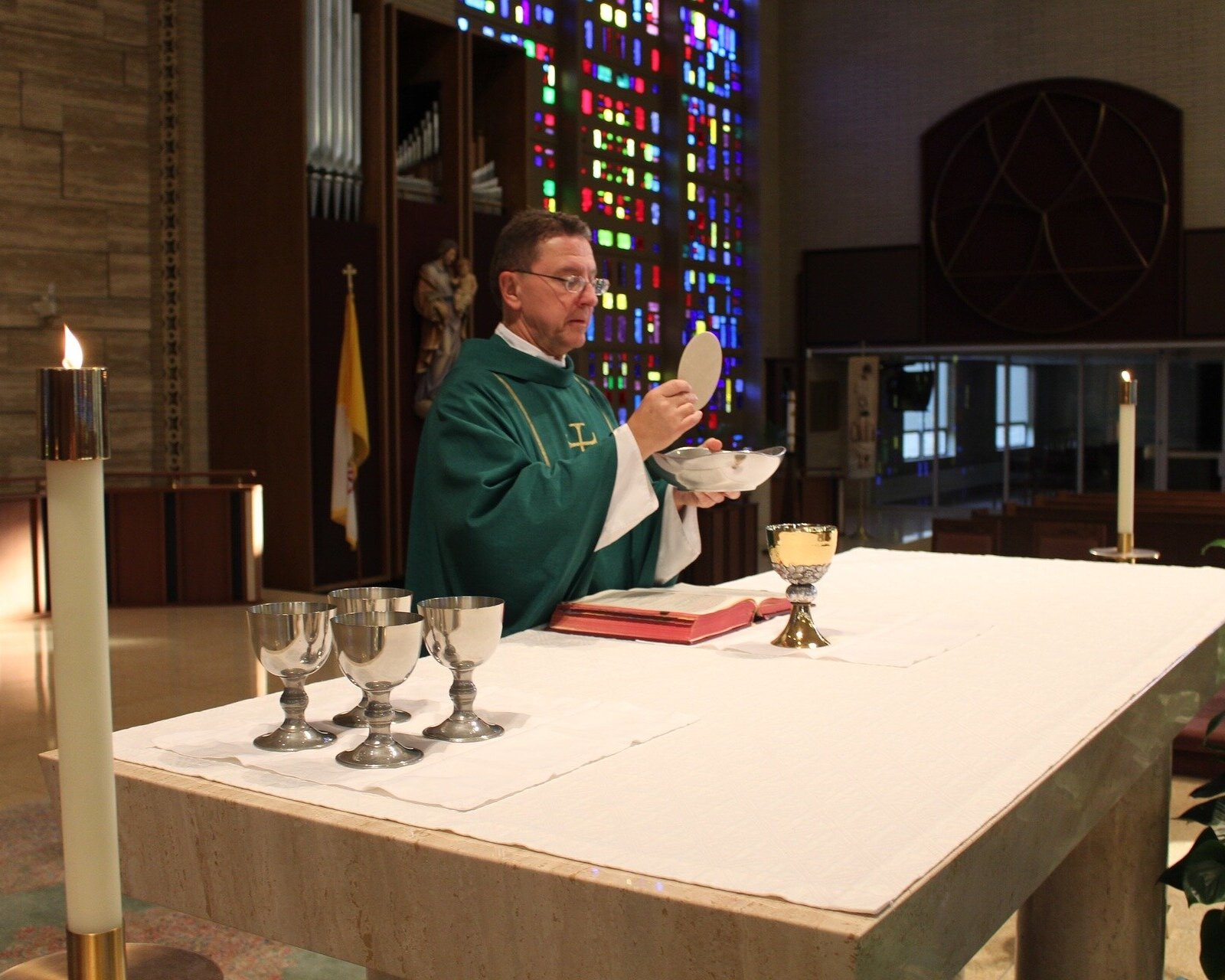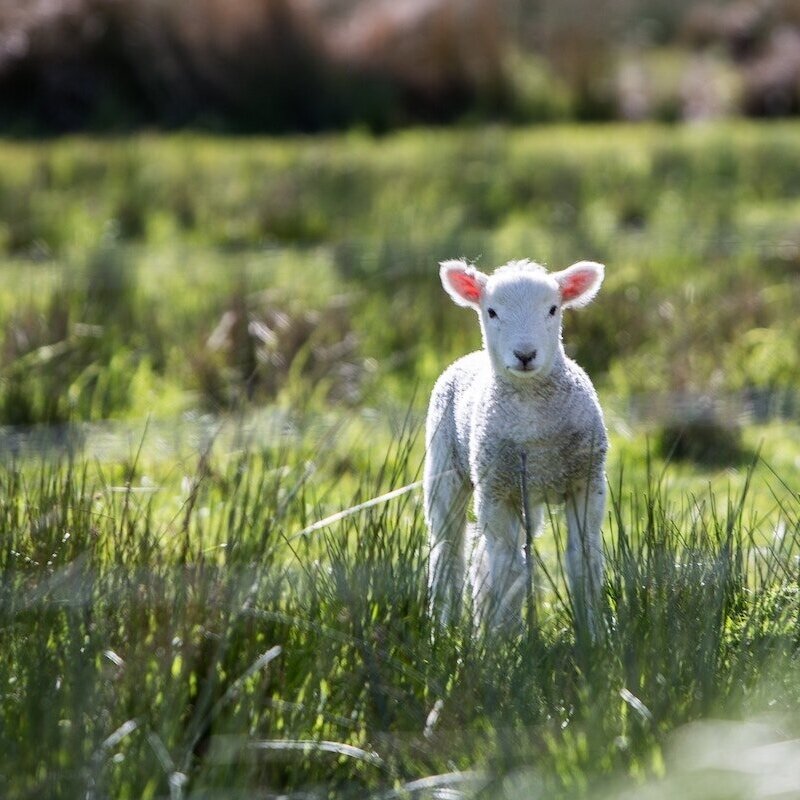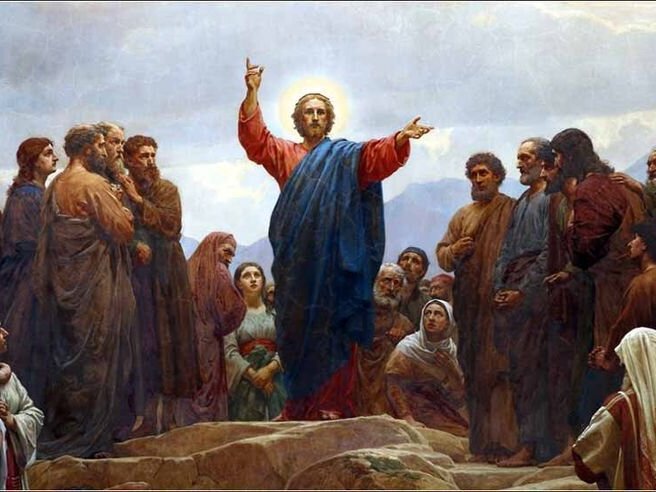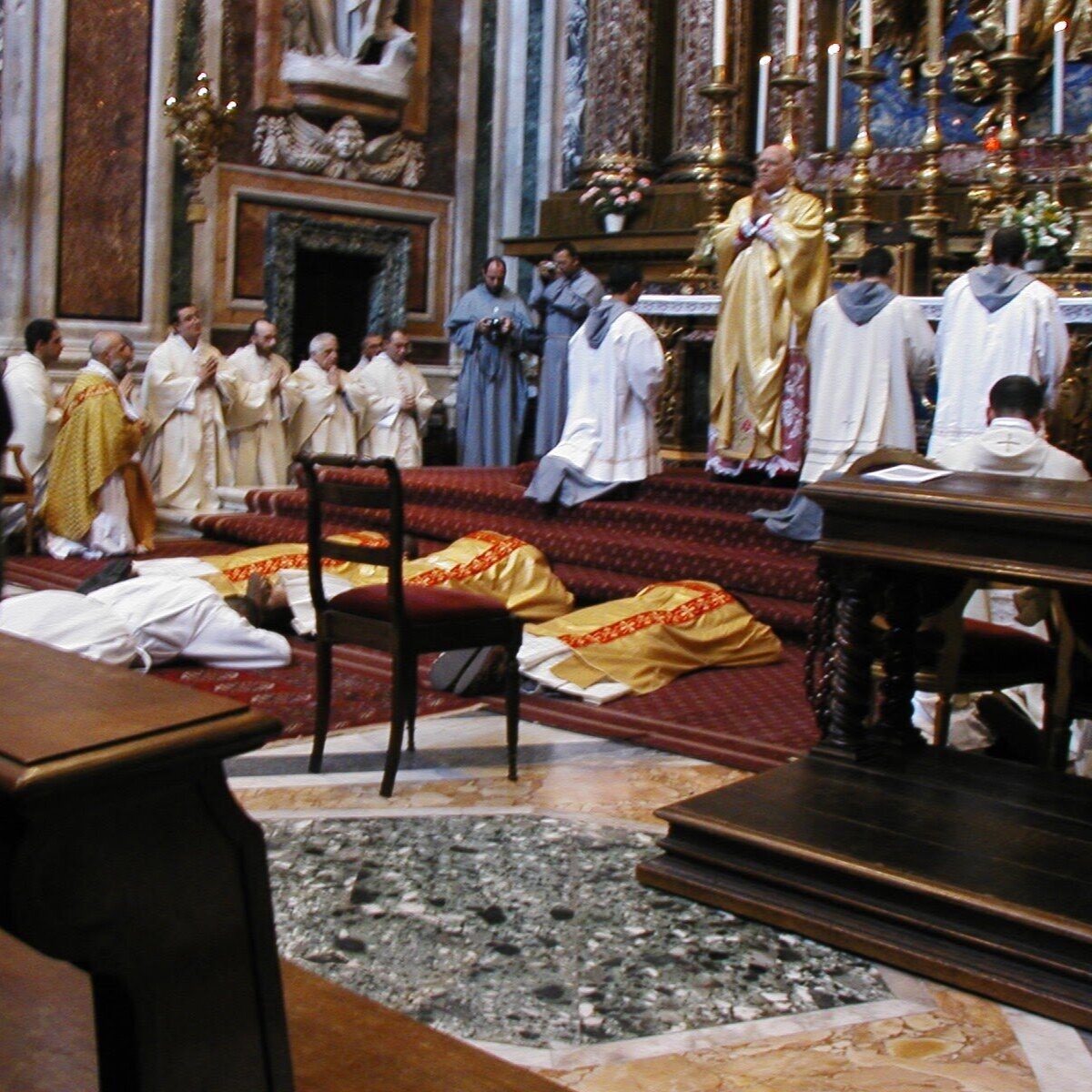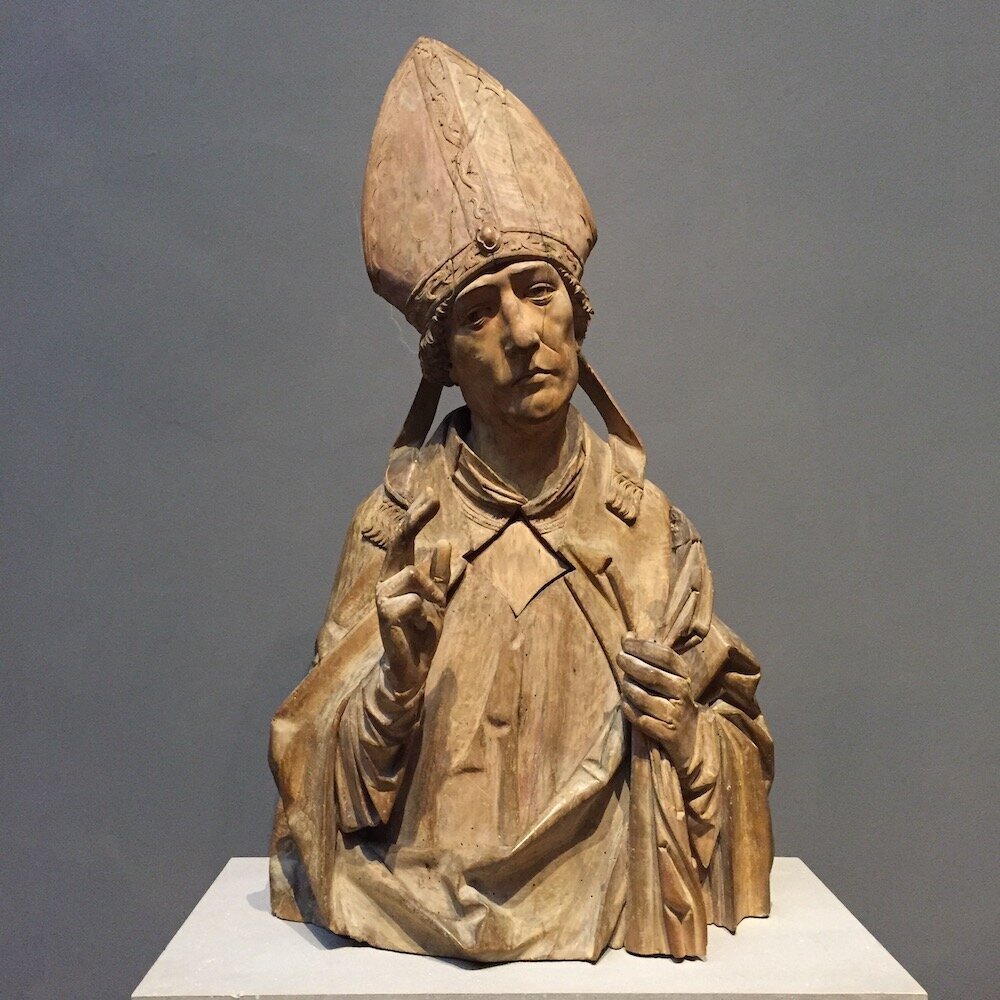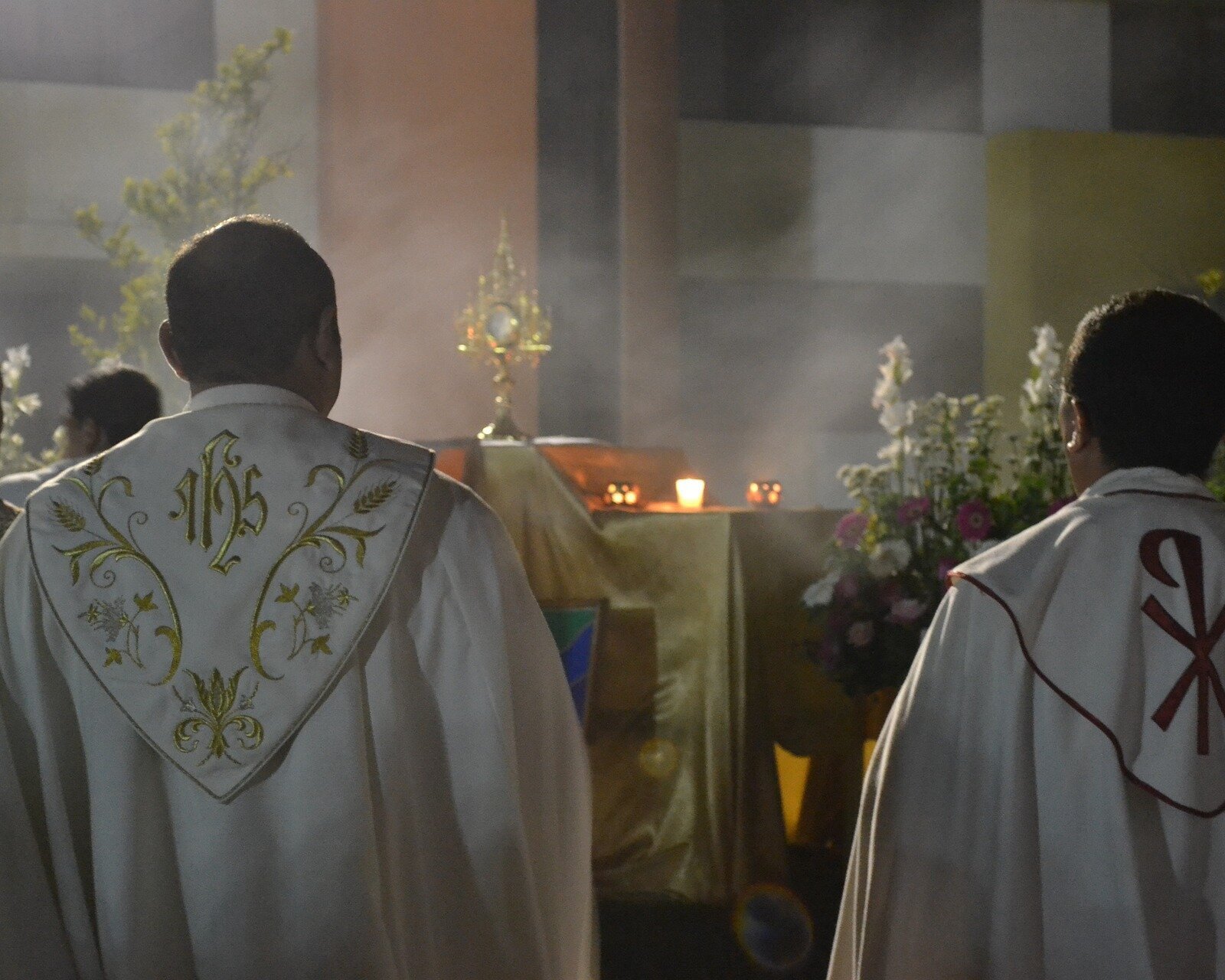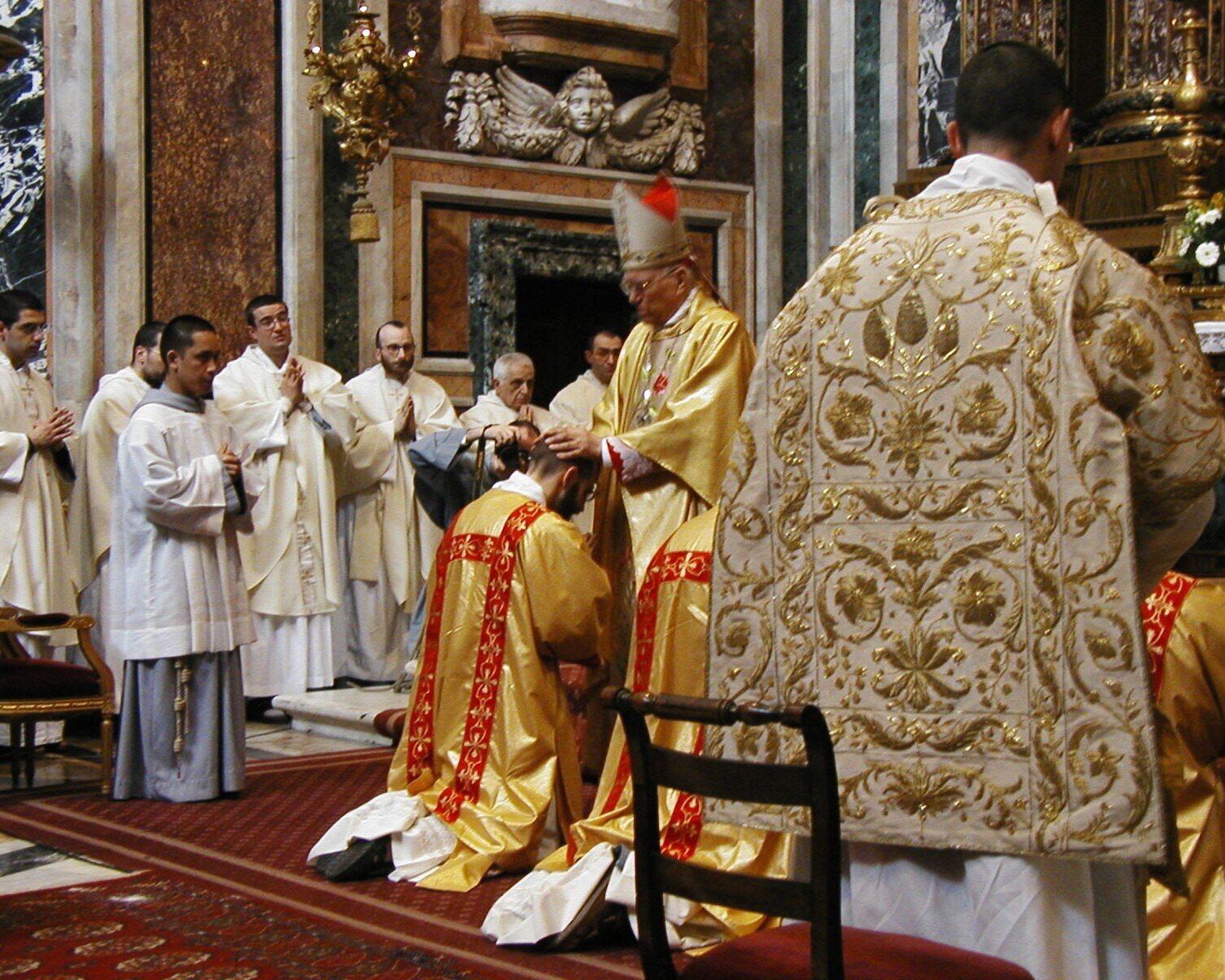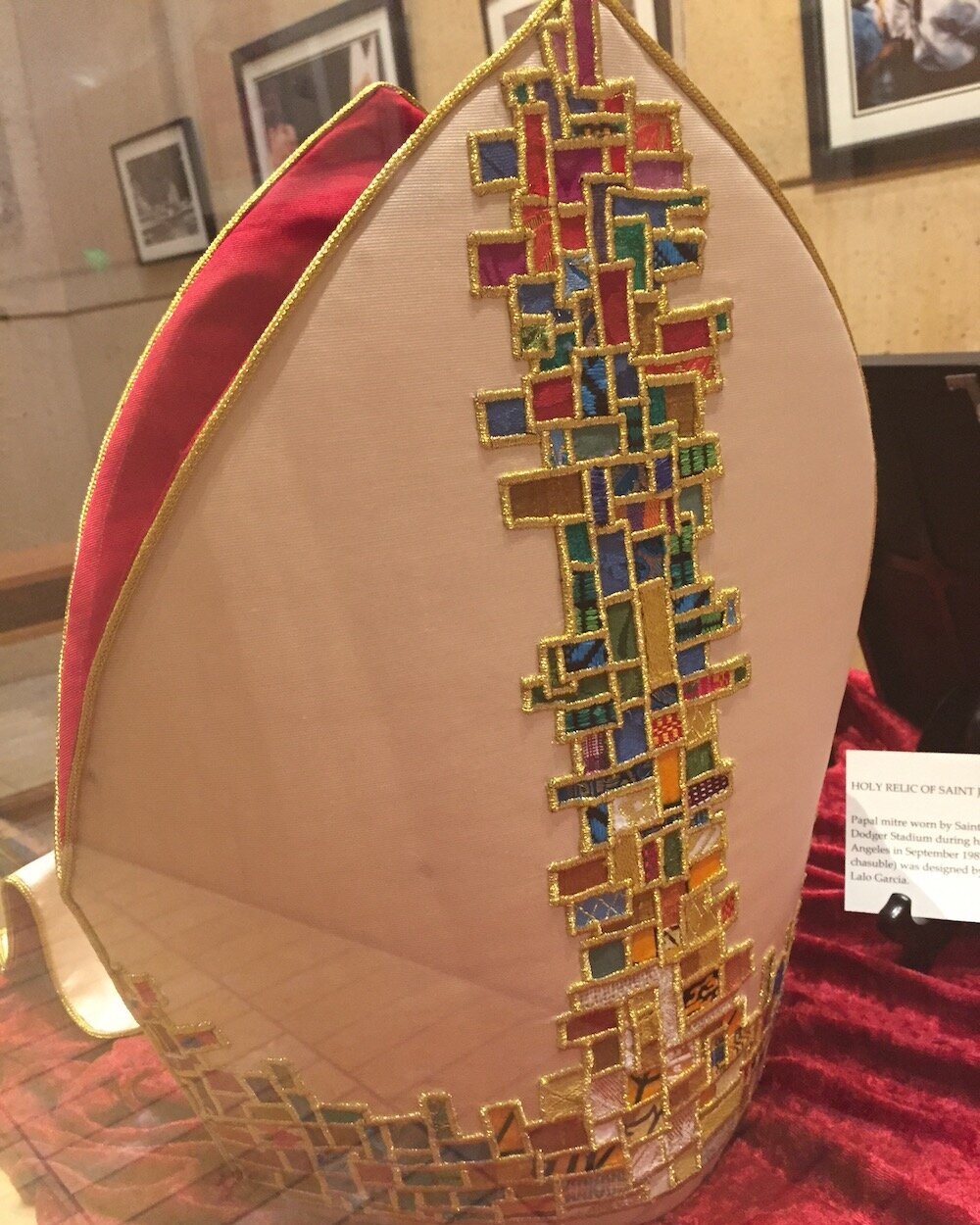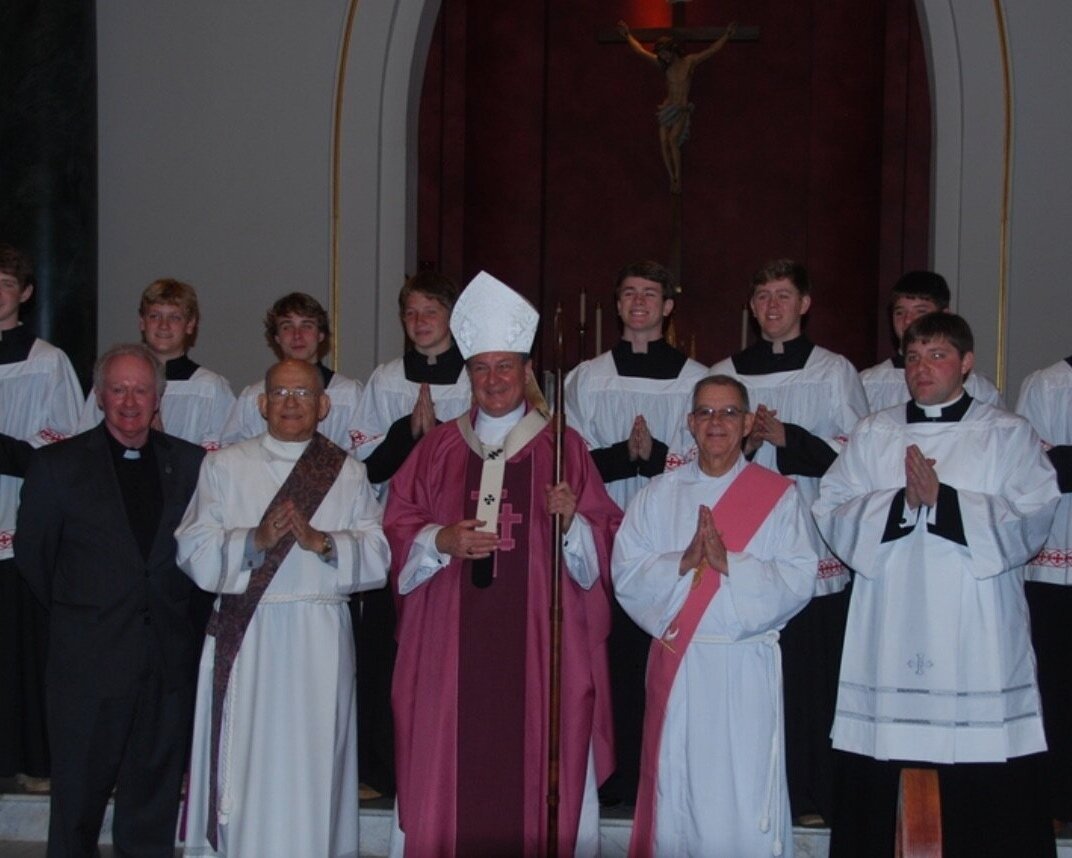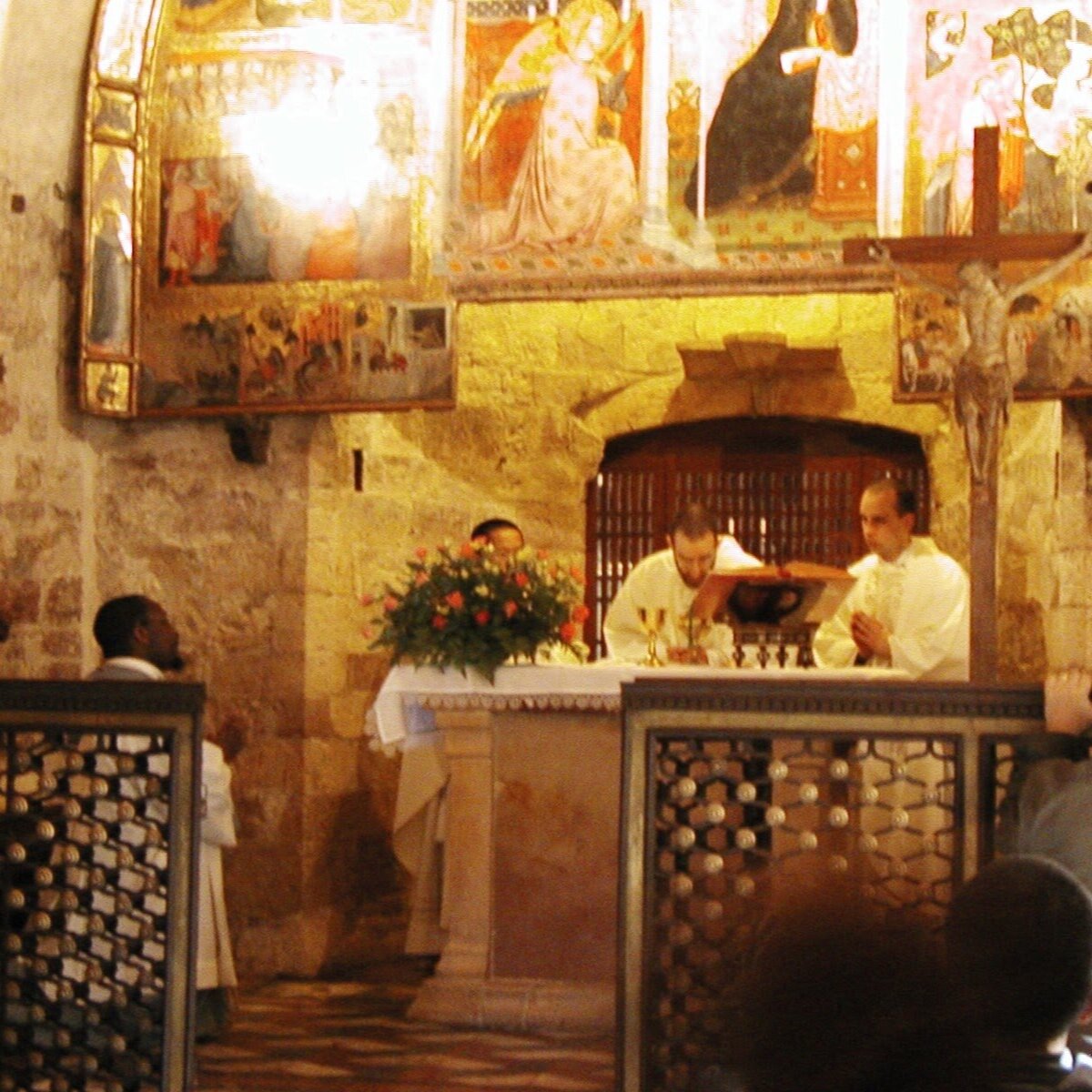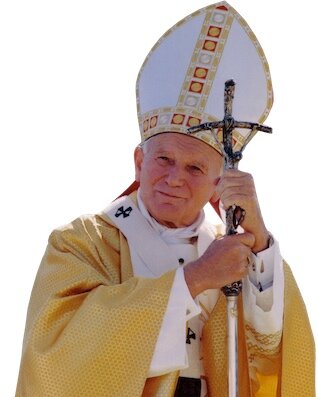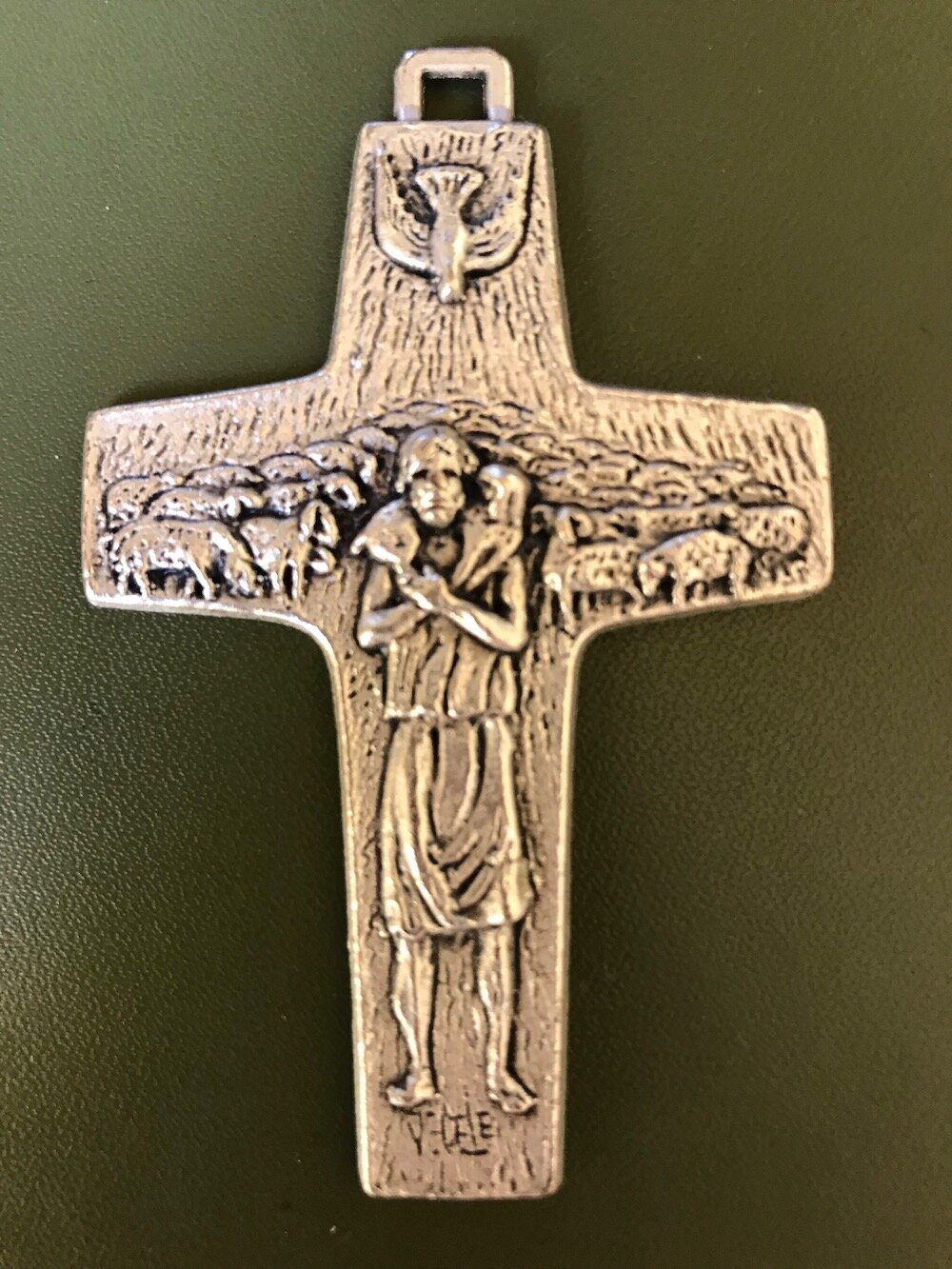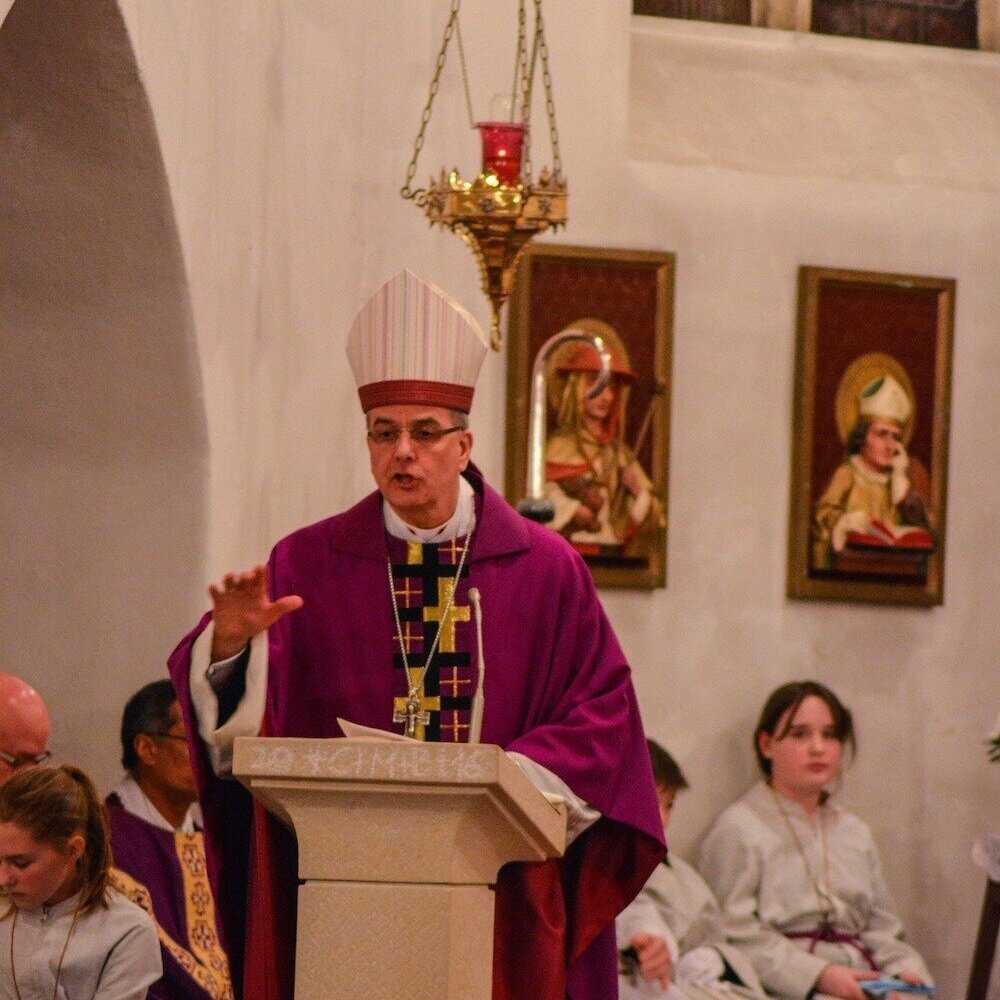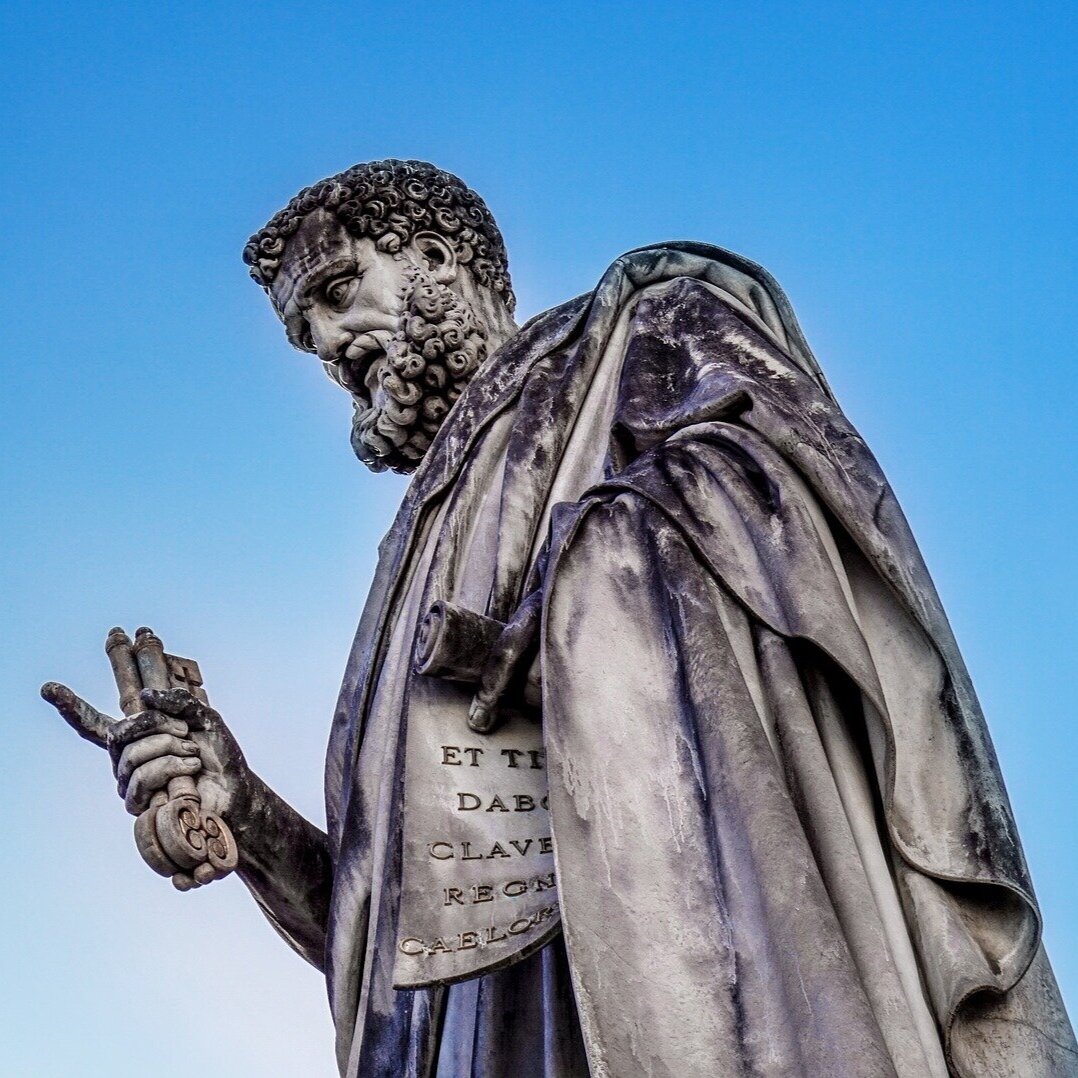Tend the flock of God in your midst,
[overseeing] not by constraint but willingly,
as God would have it,
not for shameful profit but eagerly.
Do not lord it over those assigned to you,
but be examples to the flock.
-- 1 Peter 5:2-3
Topics
Click on the image of the topic you wish to explore or just scroll down to view the entire page.
Bishops as Shepherds
The authority of the Catholic Church rests with the bishops who oversee the work of the priests and deacons. Bishops include bishops, archbishops, and the Pope, who is also the Bishop of Rome. Pope Francis, when talking to a group of recently appointed bishops in 2013, commented that the three components of tending the flock are “welcoming magnanimously, walking with the flock, and staying with the flock.”
Further describing his view of the role of Bishops in today’s society Pope Francis went on to state at a meeting of the American Bishops in 2015:
“May bishops be shepherds, close to the people; fathers and brothers, may they be gentle, patient and merciful; may they love poverty, interior poverty, as freedom for the Lord, and exterior poverty, as well as simplicity and a modest lifestyle; may they not have the mindset of ‘princes’. Be careful that they are not ambitious, that they are not in quest of the episcopate, that they are espoused to the Church, without constantly seeking another; this is called adultery. May they be overseers of the flock that has been entrusted to them, to take care of everything that is needed to keep it united.”
Selecting the Shepherds
From the beginning, Jesus came to tend to his flock. His parable on the lost sheep demonstrates his philosophy on the importance of saving souls despite the cost to the shepherd:
“Which one of you, having a hundred sheep and losing one of them, does not leave the ninety-nine in the wilderness and go after the one that is lost until he finds it? When he has found it, he lays it on his shoulders and rejoices. And when he comes home, he calls together his friends and neighbors, saying to them, ‘Rejoice with me, for I have found my sheep that was lost.’ Just so, I tell you, there will be more joy in heaven over one sinner who repents than over ninety-nine righteous persons who need no repentance." [Lk 15:4-7, NRSVCE]
This was also a message in the Old Testament:
... there they shall lie down in good grazing land, and they shall feed on rich pasture on the mountains of Israel. I myself will be the shepherd of my sheep, and I will make them lie down, says the Lord God. I will seek the lost, and I will bring back the strayed, and I will bind up the injured, and I will strengthen the weak, but the fat and the strong I will destroy. I will feed them with justice. [Ez 34:14-16, NRSVCE]
Over his three-year ministry, Jesus selected his apostles, who would be the shepherds of his Church, from his flock. They were not prominent figures or princes -- many of them were fishermen, while one was even a tax collector, an occupation hated by most. He called the Apostle Peter his “Rock” because God had revealed to Peter that Jesus was the Son of the living God:
He said to them, “But who do you say that I am?” Simon Peter answered, “You are the Messiah, the Son of the living God.” And Jesus answered him, “Blessed are you, Simon son of Jonah! For flesh and blood has not revealed this to you, but my Father in heaven And I tell you, you are Peter, and on this rock I will build my church, and the gates of Hades will not prevail against it." [Mt 16:15-18, NRSVCE]
Then Jesus gave Peter the keys to the kingdom of heaven, making him the head of the apostles and his future church:
"I will give you the keys of the kingdom of heaven, and whatever you bind on earth will be bound in heaven, and whatever you loose on earth will be loosed in heaven.” [Mt 16:19, NRSVCE]
This act of conveying the authority of the church onto Peter is pre-figured in the Old Testament and is the scriptural basis for Papal authority/autonomy in the Catholic church:
On that day I will call my servant Eliakim son of Hilkiah, and will clothe him with your robe and bind your sash on him. I will commit your authority to his hand, and he shall be a father to the inhabitants of Jerusalem and to the house of Judah. I will place on his shoulder the key of the house of David; he shall open, and no one shall shut; he shall shut, and no one shall open. I will fasten him like a peg in a secure place, and he will become a throne of honor to his ancestral house. [Is 22:20-23, NRSVCE]
Jesus Instructs the Apostles
Jesus commissioned his apostles to build his Church, by instructing them on its principles and sacraments and by giving them the authority to instruct others:
And Jesus came and said to them, “All authority in heaven and on earth has been given to me. Go therefore and make disciples of all nations, baptizing them in the name of the Father and of the Son and of the Holy Spirit, and teaching them to obey everything that I have commanded you. And remember, I am with you always, to the end of the age.” [Mt 28:18-20, NRSVCE]
Click on picture captions below to see some Bible verses associated with the principles and sacraments of the Catholic Church.

